RA&A Weeks 9&10
1/45
There's no tags or description
Looks like no tags are added yet.
Name | Mastery | Learn | Test | Matching | Spaced |
|---|
No study sessions yet.
46 Terms
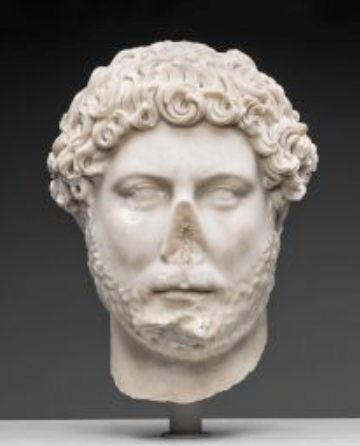
Portrait Head of Emperor Hadrian, 101 A.D.-200 A.D., Marble,
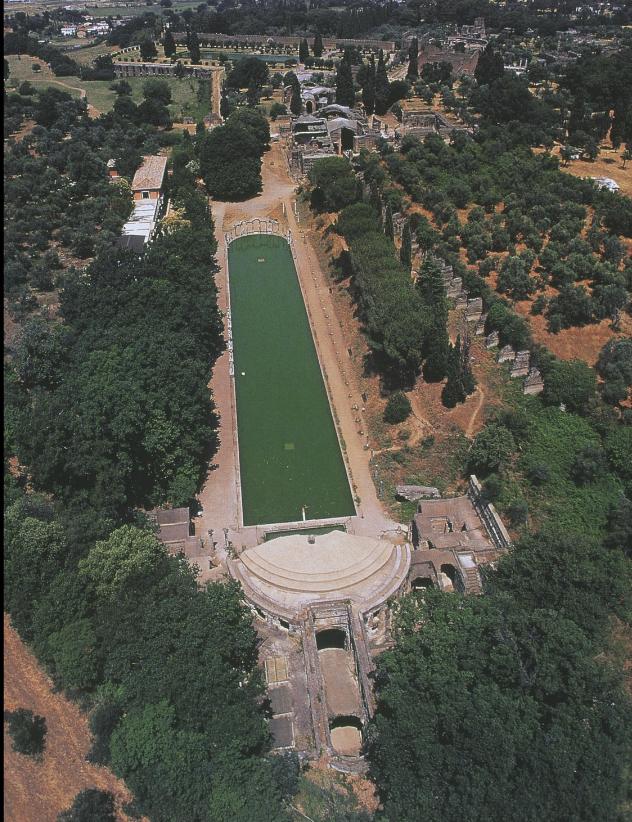
Tivoli: Hadrian's Villa: general view Canopus and the Serapeum, Tivoli (Italy), Hadrian, Emperor of Rome, 76-138 Tivoli (Italy)--Hadrian's Villa Architecture: Site--Roman Italy--2nd C. A.D, Canals
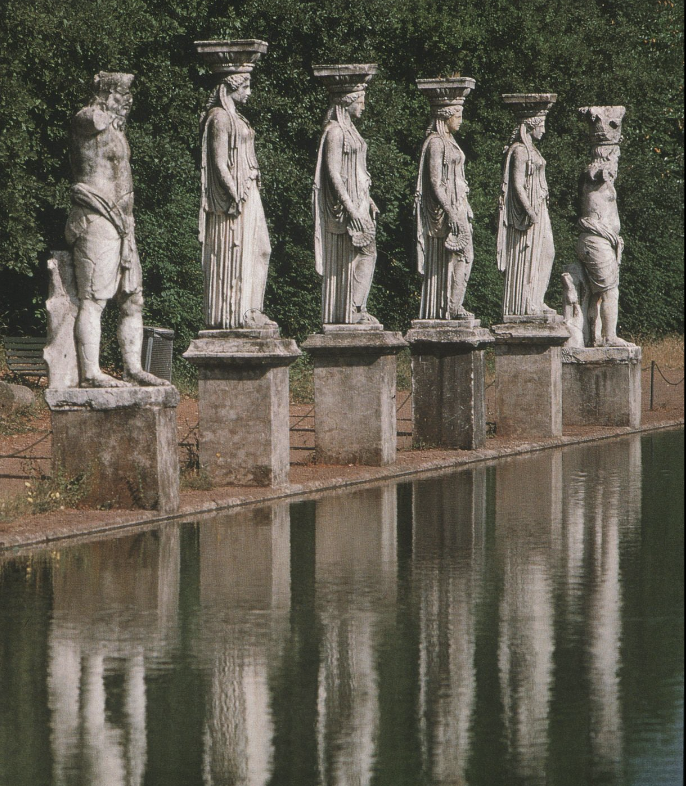
Tivoli: Hadrian's Villa Canopus: artificial canal: det.: statues along the west side, 118-134 A.D, Tivoli (Italy), Hadrian, Emperor of Rome, 76-138. Tivoli (Italy)--Hadrian's Villa, Architecture: Site--Roman Italy--2nd C. A.D. Hippodromes, Pools, Stadiums--Roman Italy, caryatids
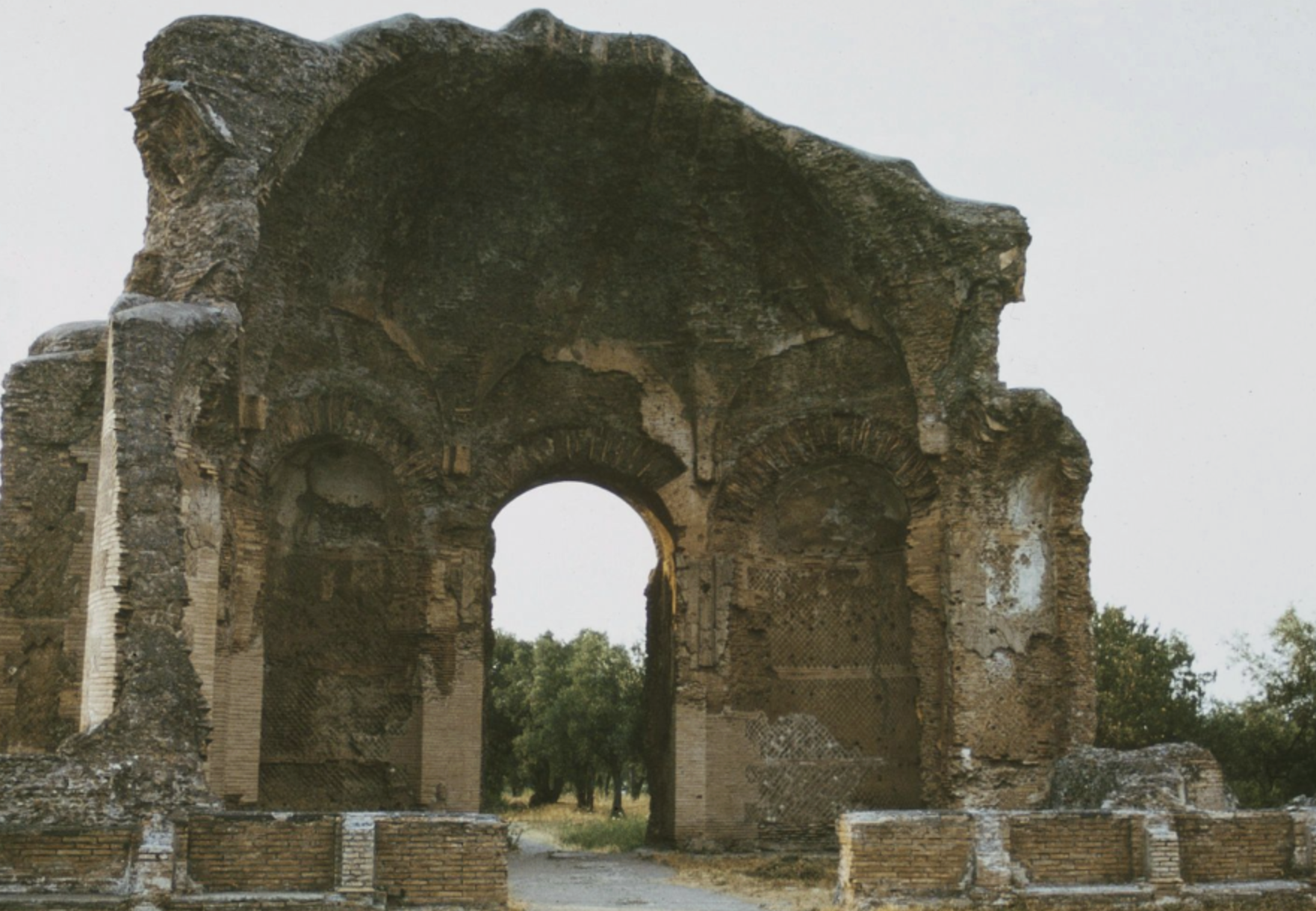
Tivoli: Hadrian's Villa: Ext.: Piazza d'Oro pavillion: vestibule, 118-134 A.D, Tivoli (Italy), Architecture: Site--Roman Italy--2nd C. A.D
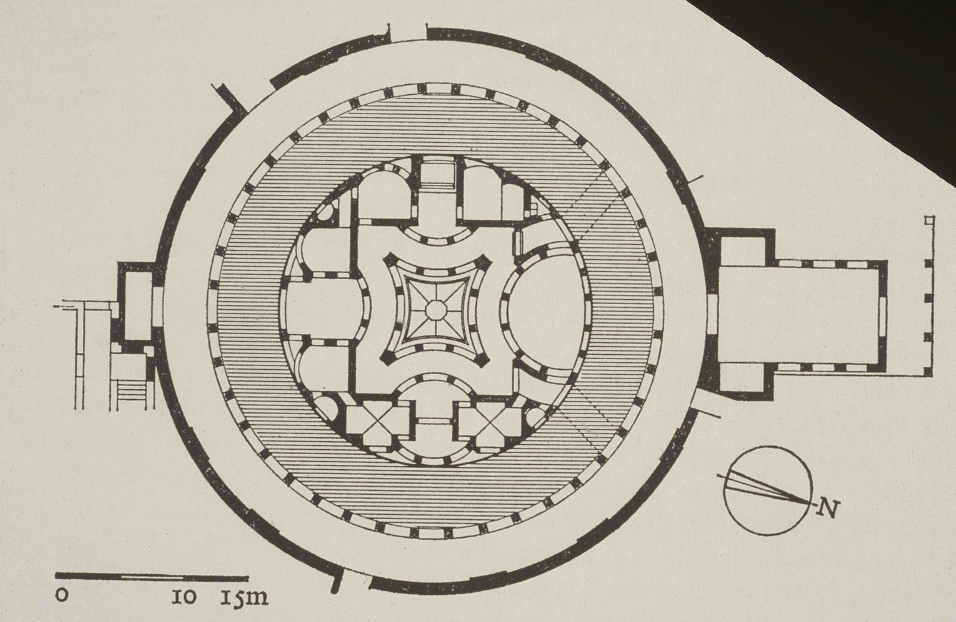
Tivoli: Hadrian's Villa Plan Teatro Maritimo, 118-125 A.D., Tivoli (Italy), Architecture:Site--Roman Italy--2nd C. A.D
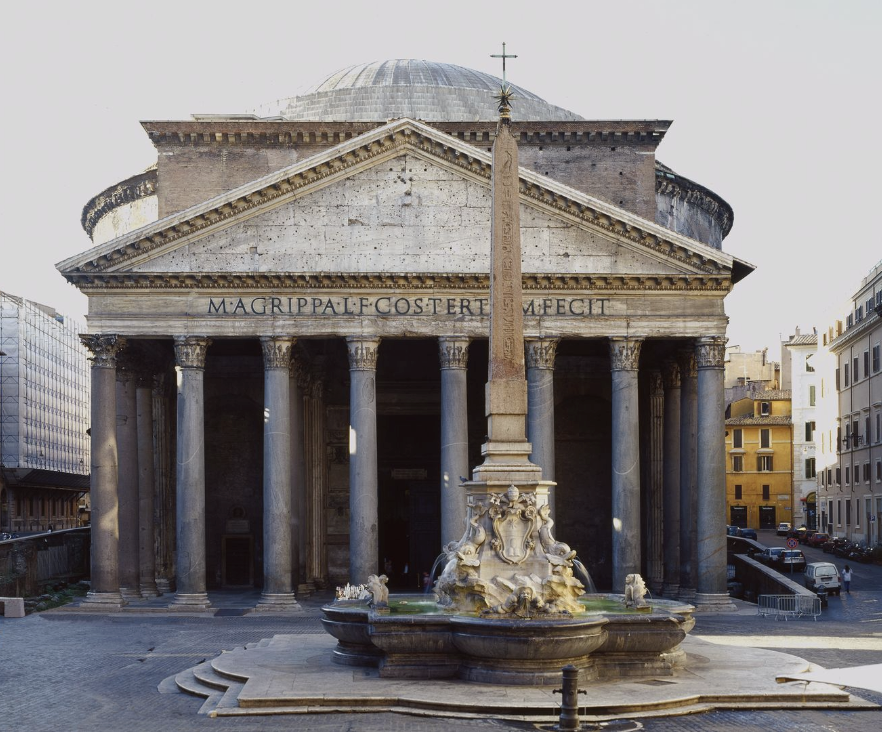
Pantheon view of the facade with the Piazza Rotunda and fountain, Imperial (Roman), 125 - 128 CE, marble, brick, and concrete; columns of Egyptian granite, bases and columns of Pentelic marble
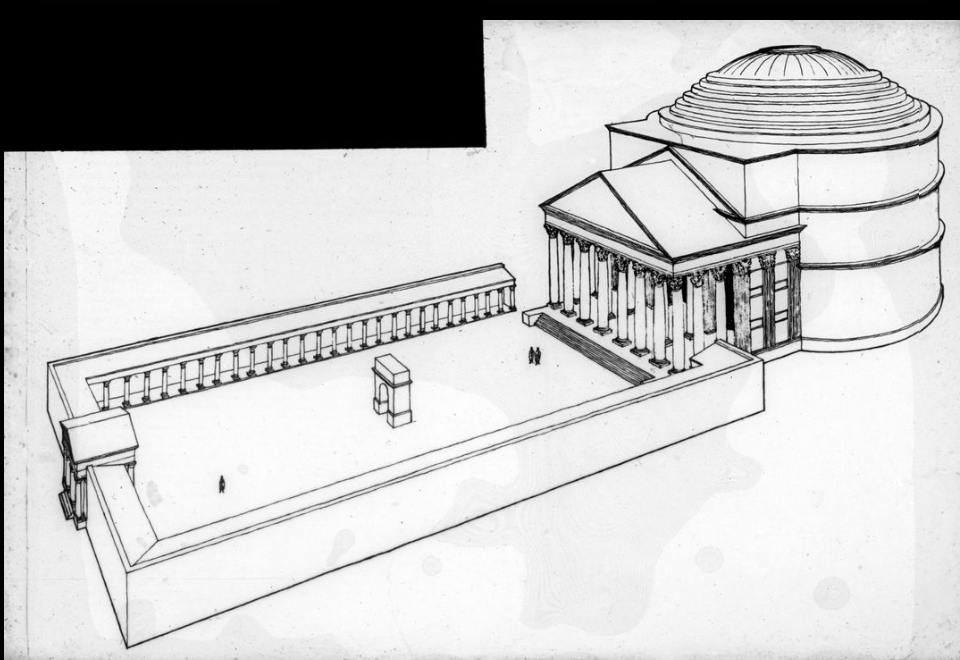
Rome. Pantheon and forecourt conjunction. Restored view, Roman Imperial, 118-125 CE
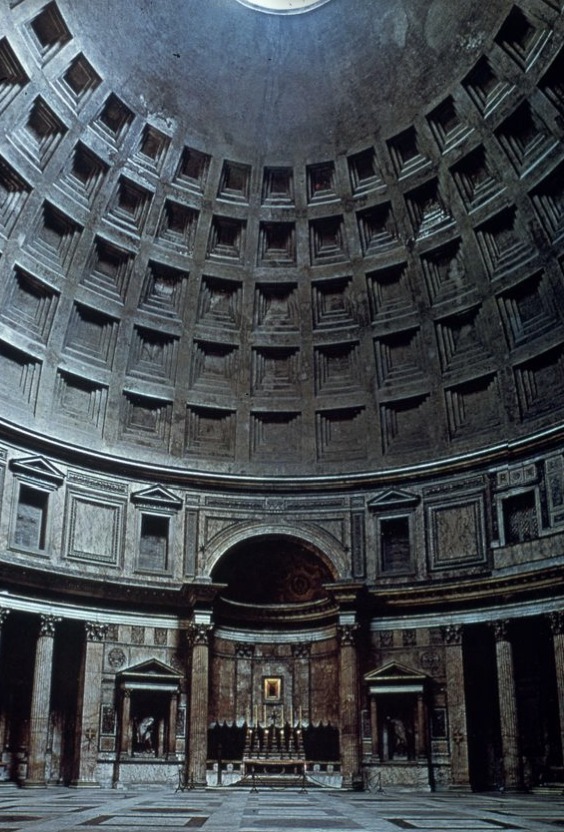
Rome: Pantheon: Int.: view toward apse, c.118-128 A.D., Apses, Architecture: Site--Roman Italy--2nd C. A.D, Temple
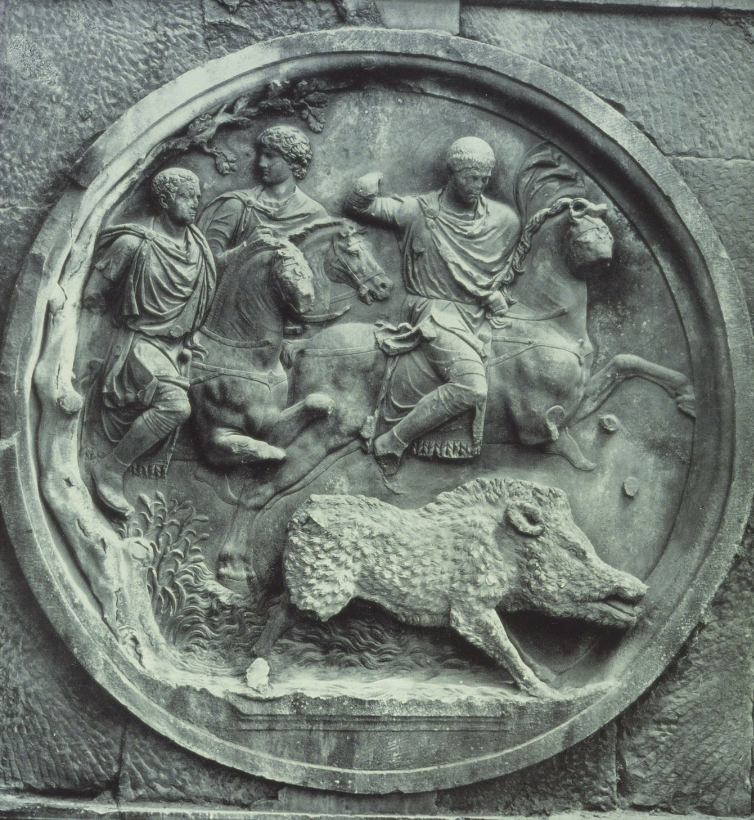
Rome: Arch of Constantine: Ext.: north face: left side: tondo relief: "Boar Hunt" from lost Hadrianic monument, c.117-138 A.D,
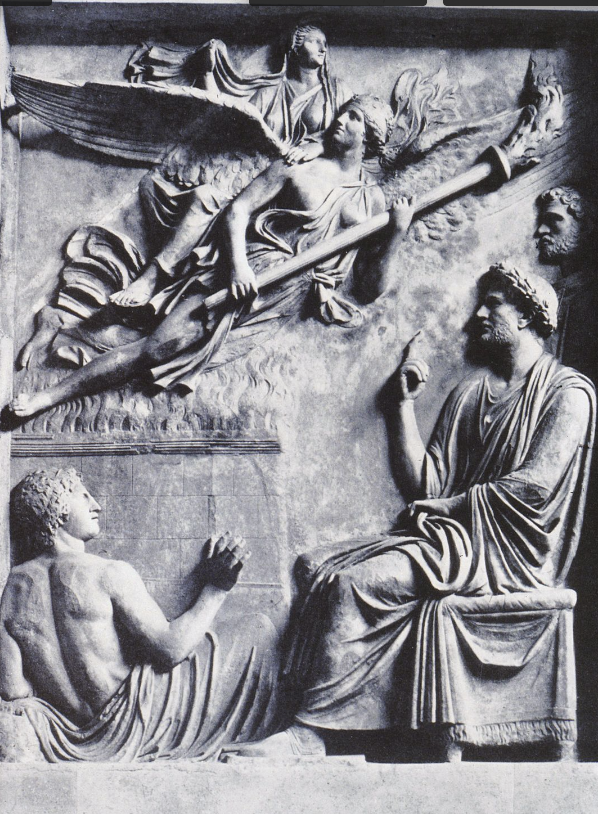
Panel Relief from Arch of Hadrian: Apotheosis of the Empress Sabina, After 138 A.D., Sculpture--Roman: Antonines--138-192 A.D
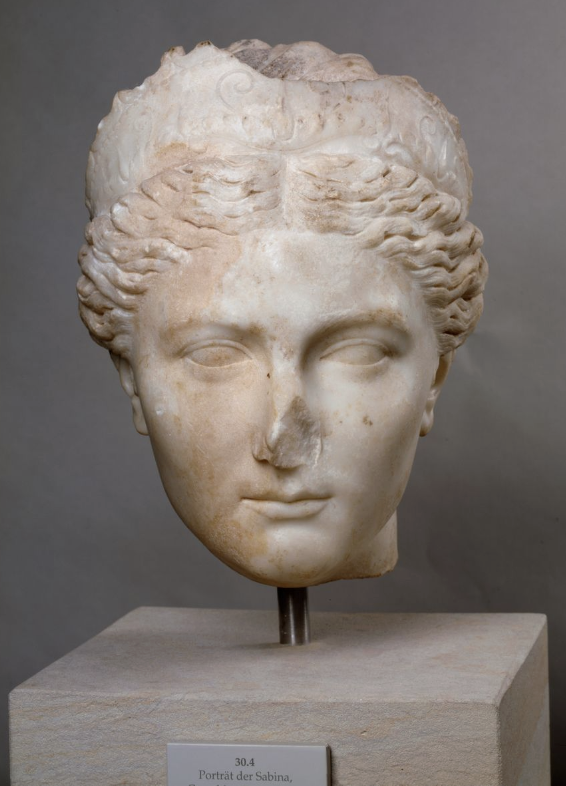
The portrait depicts Sabina, wife of Emperor Hadrian, in her main portrait type, Roman, Hadrianic, ca. 130 CE
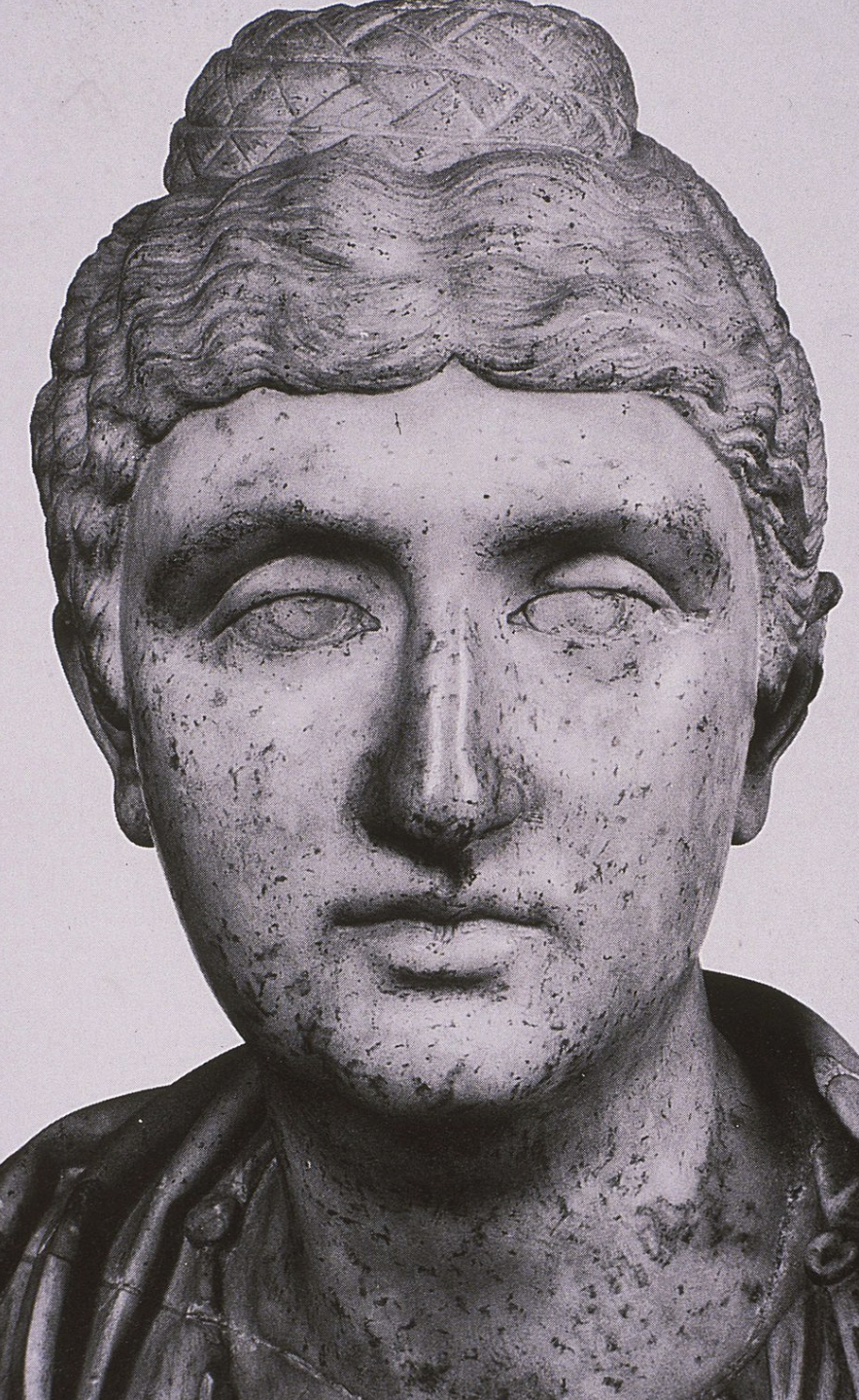
Portrait head of Faustina the Elder: front view, 138-141 A.D., Held in the Museo Capitolino, Rome, From Lanuvium, Wife of Antonines Pius, marble
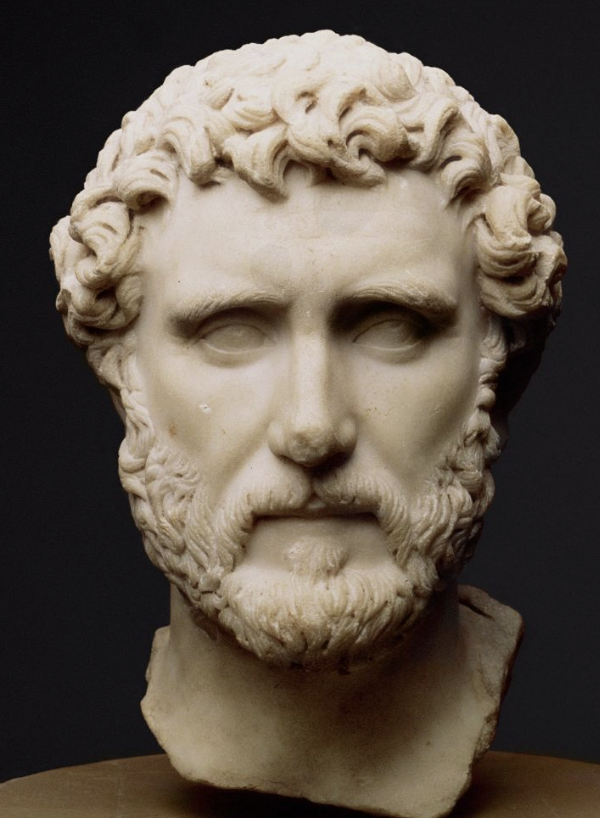
Marble portrait of the emperor Antoninus Pius, Stone Sculpture, Antonine, ca. 138–161 CE, Marble
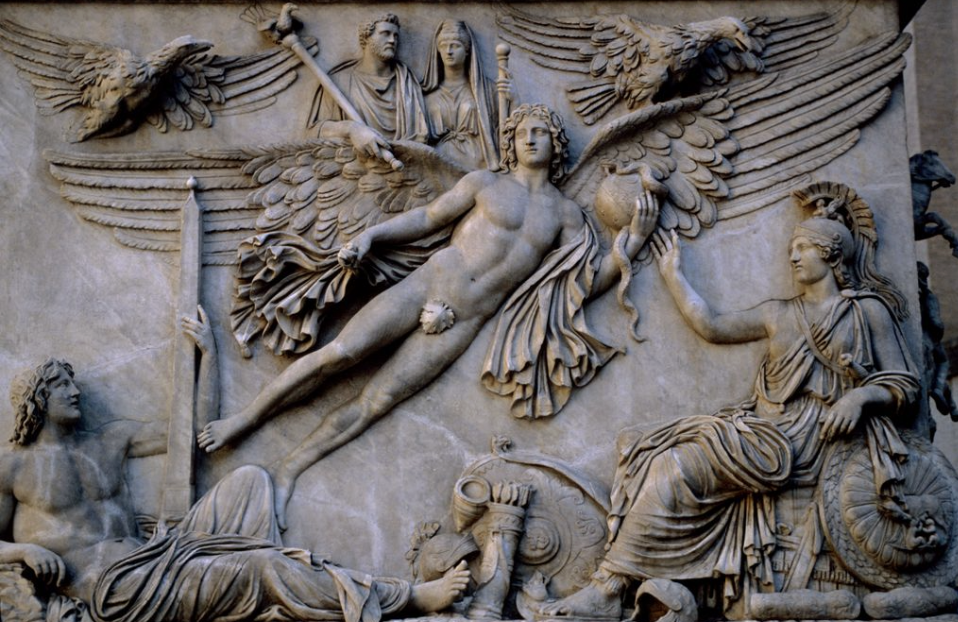
Column Base of Antoninus Pius, apotheosis of Antoninus Pius and Faustina the Elder, relief, c. 161 CE, commissioned by Marcus Aurelius and Lucius Verus; originally located in the Campus Martius, Rome, Italy, marble, in the Vatican Museums
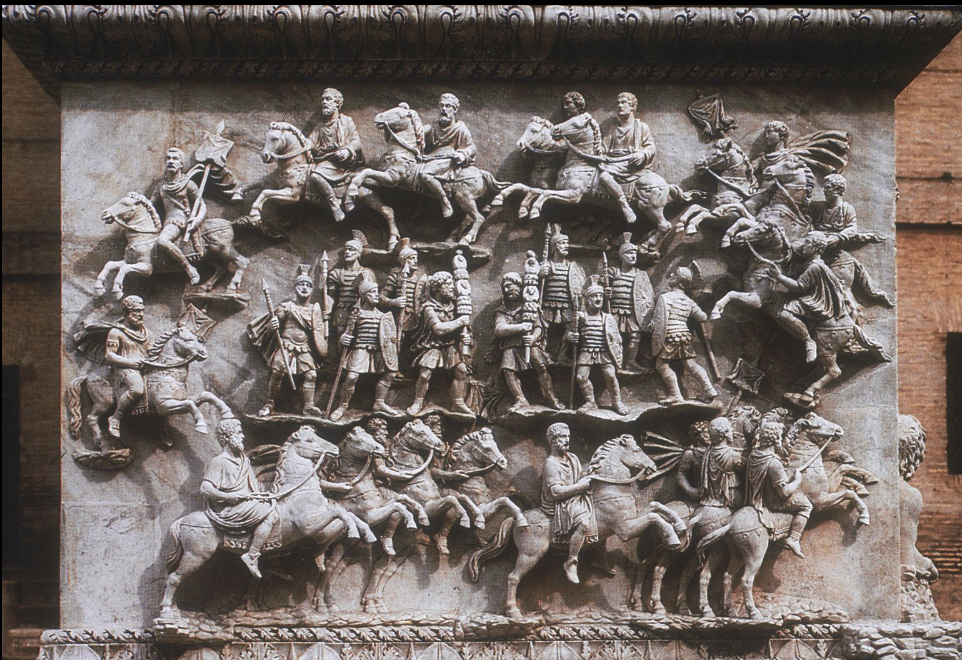
Rome: Column of Antoninus Pius: base: 'Discursio' panel, c.161 A.D, Antoninus Pius, Emperor of Rome, 86-161
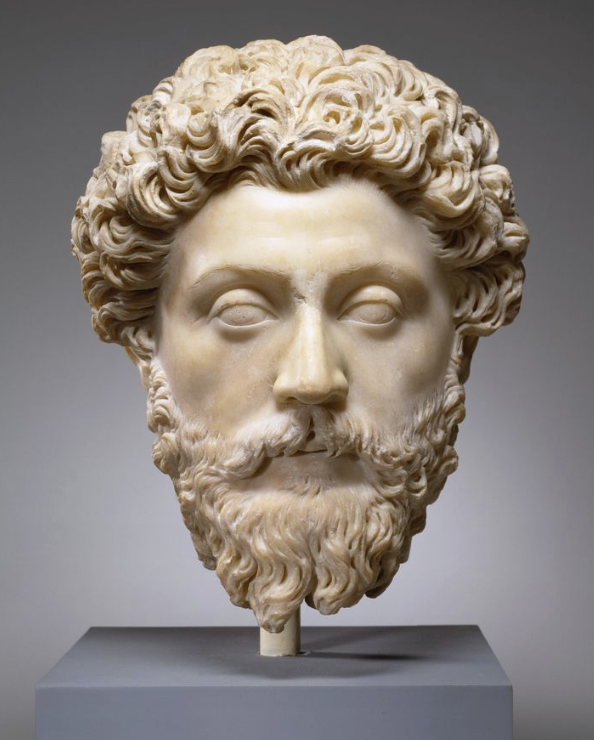
Portrait of Marcus Aurelius, European; Southern European; Roman Empire, 161-180 A.D., marble
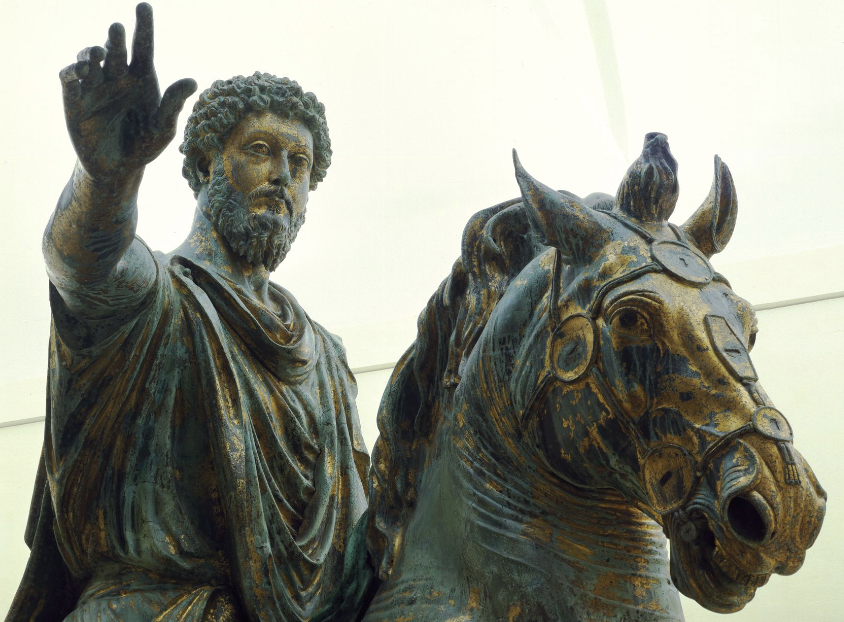
Equestrian Statue of Marcus Aurelius, Imperial (Roman), 161 - 180 CE, bronze with traces of gilding, Musei capitolini (Rome, Italy)
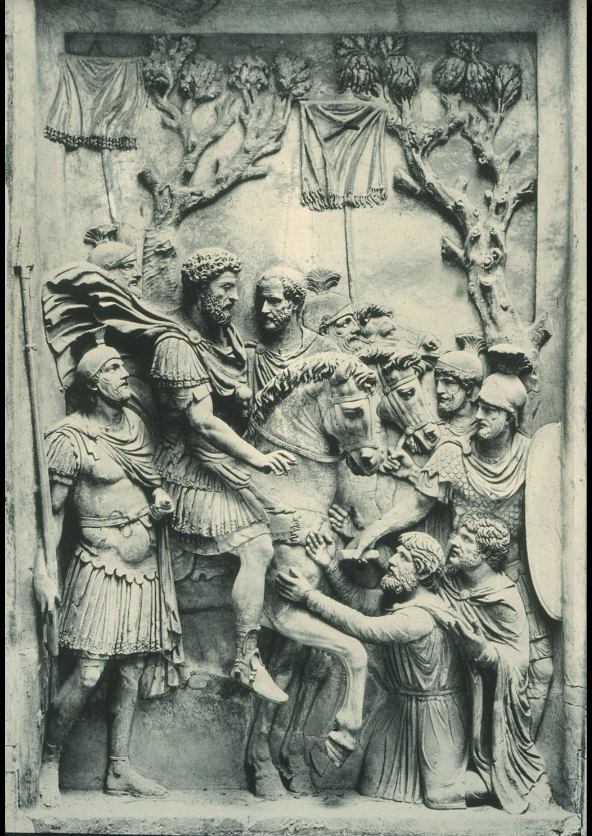
Rome: Arch of Marcus Aurelius: panel relief: Clementia, c.176-180 A.D, 2nd C. A.D., destroyed, Rome
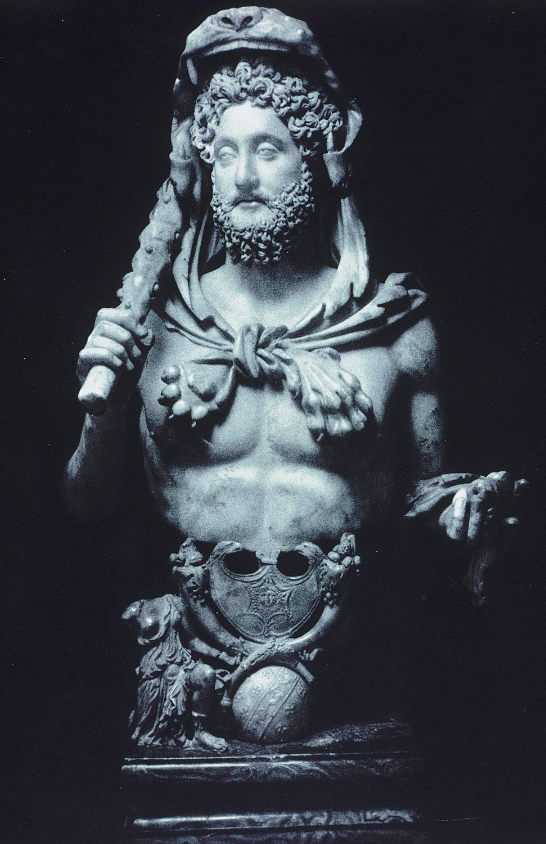
Portrait Bust of Commodus as Hercules, c.190, marble, Commodus, Emperor of Rome, 161-192
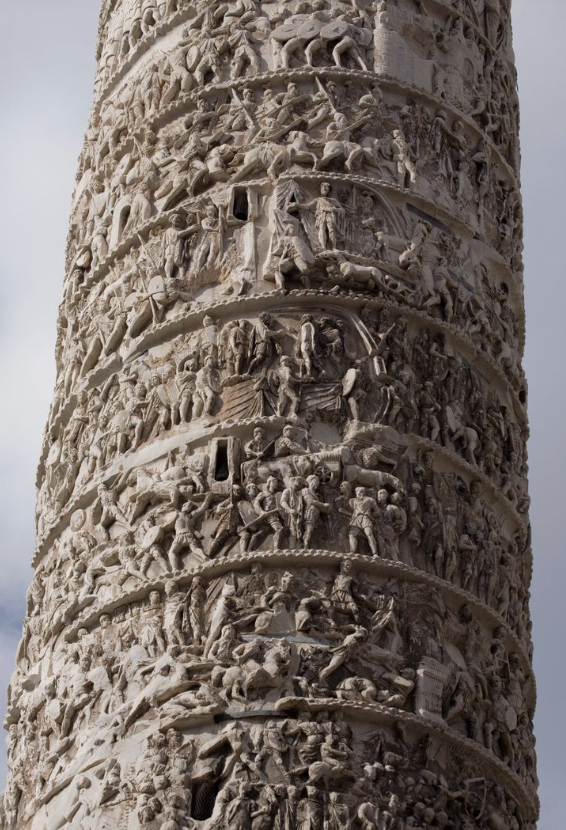
Column of Marcus Aurelius, Column was completed in 193, Rome, Italy
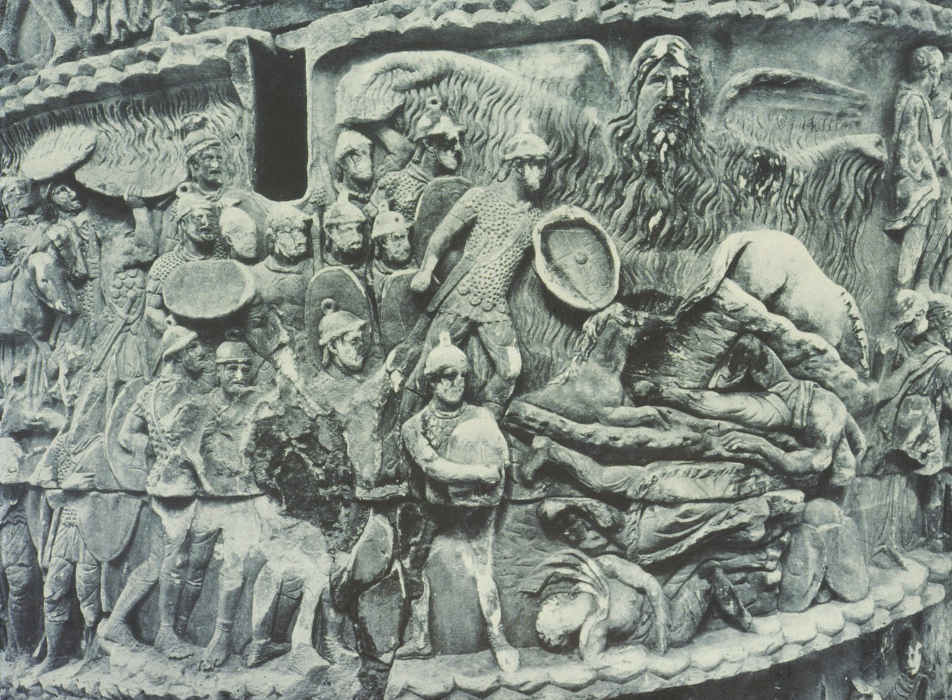
Rome: Column of Marcus Aurelius: frieze: 'Miracle of the Rainstorm', c.183-190 A.D., 2nd C. A.D.
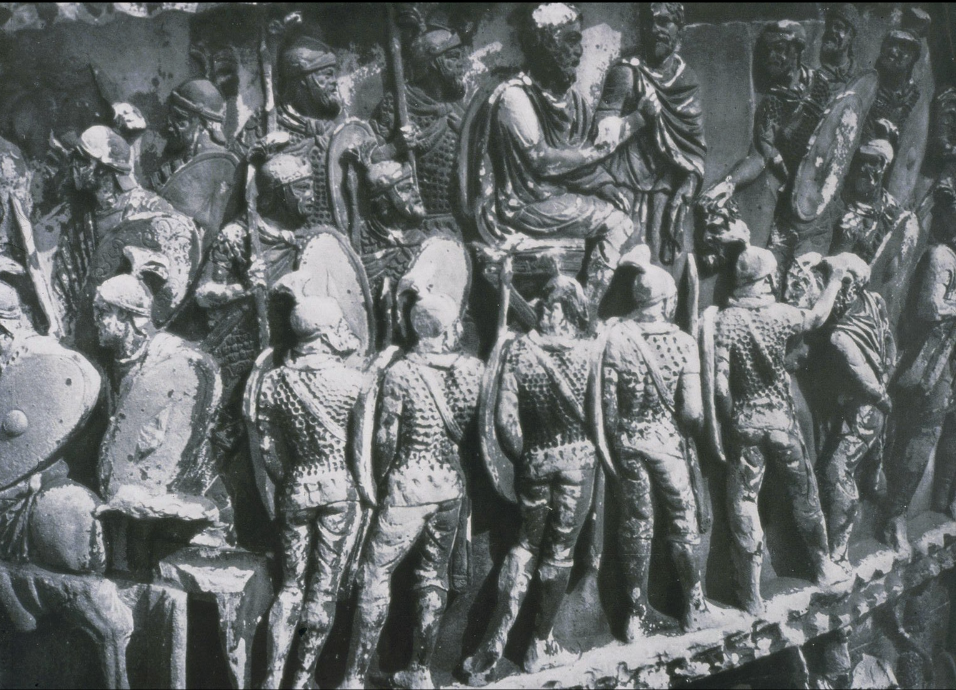
Rome: Column of Marcus Aurelius: frieze: heads of slain barbarians brought to the emperor, c.183-190 A.D., 2nd C. A.D
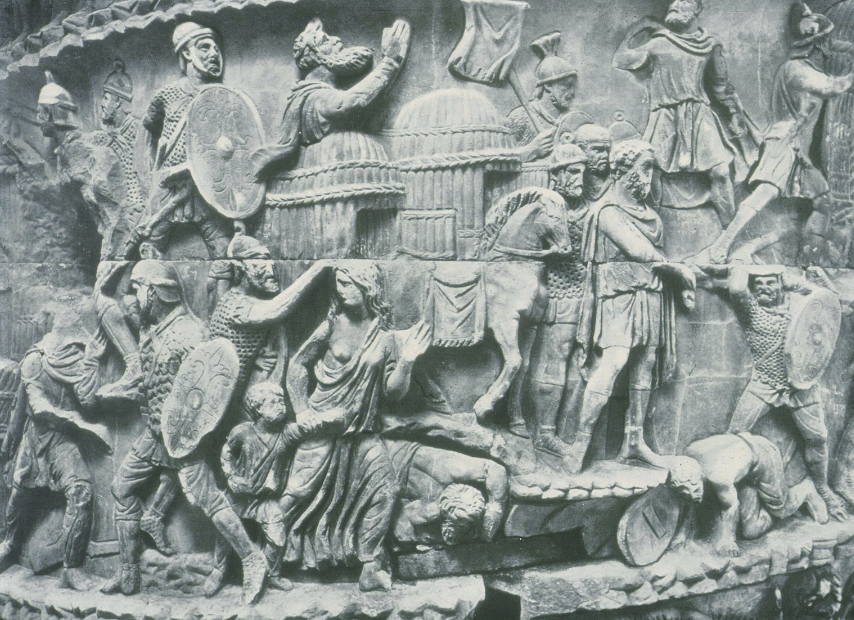
Rome: Column of Marcus Aurelius: frieze: sack of a barbarian village, c.183-190 A.D., 2nd C. A.D.
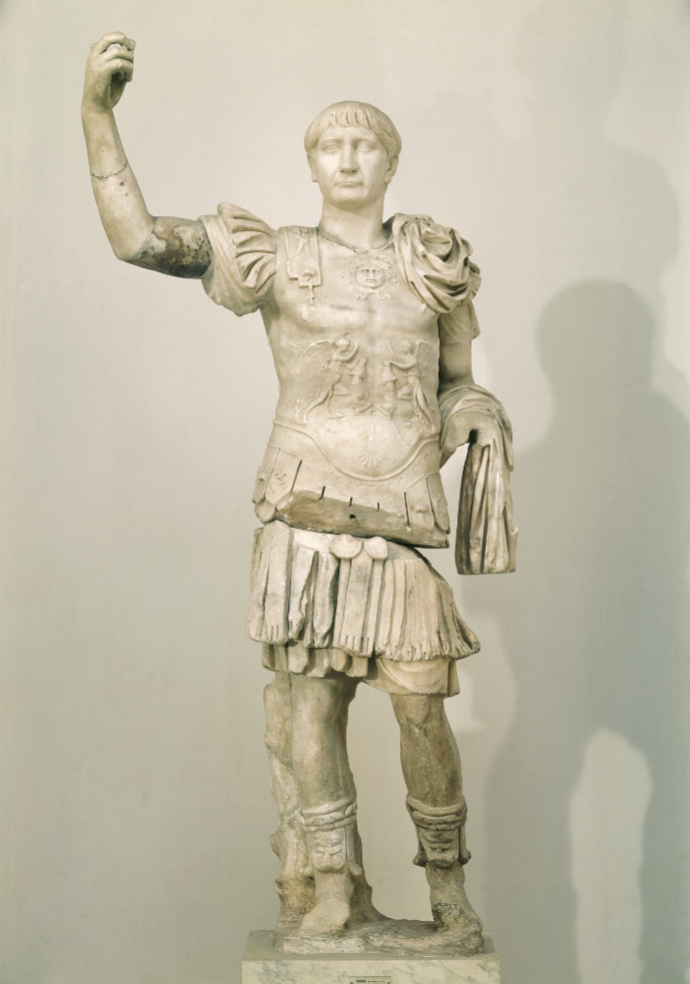
Portrait of Trajan as Imperator, Late Trajanic, c. 108 CE, from the Schola of Trajan in Ostia, marble
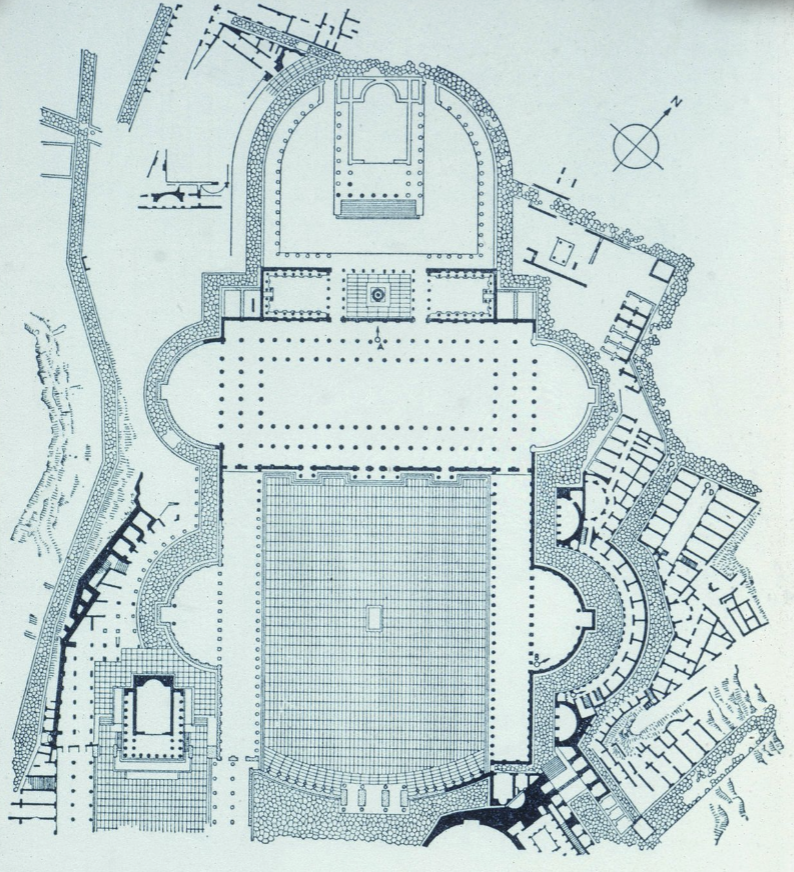
Rome: Forum of Trajan: plan, Imperial (Roman), dedicated 113 A.D
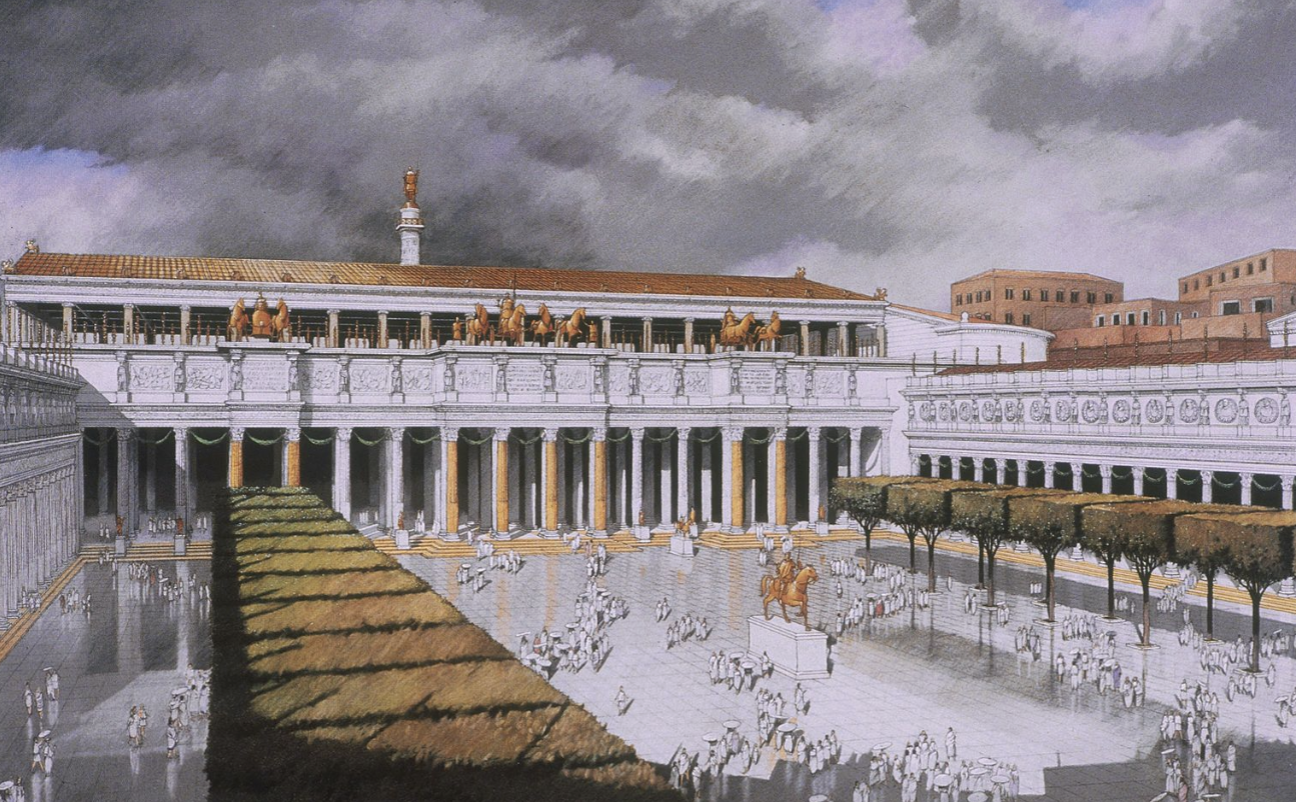
Rome: Forum of Trajan: reconstruction, 107-112 A.D., Apollodorus, of Damascus, 1st/2nd cent
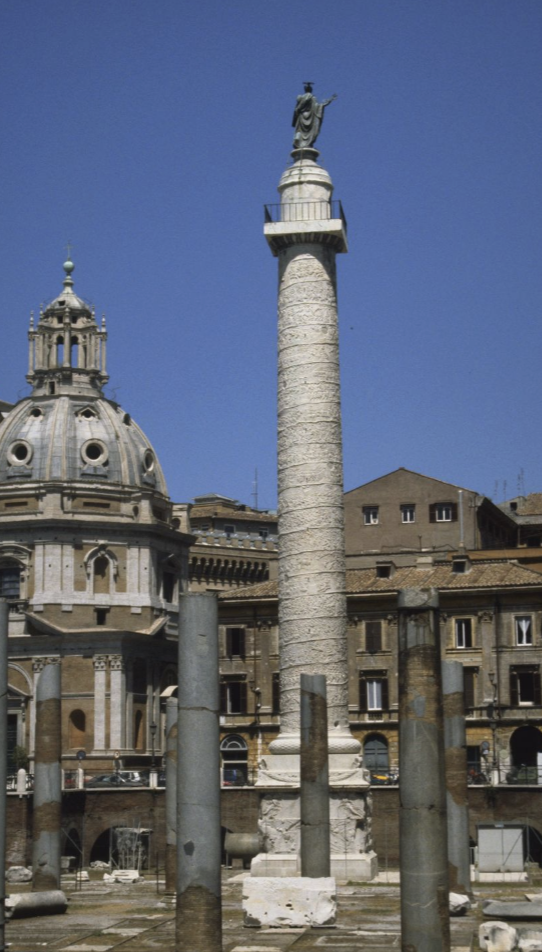
Roman (attrib. Apollodorus of Damascus), Trajan's Column, 113 AD
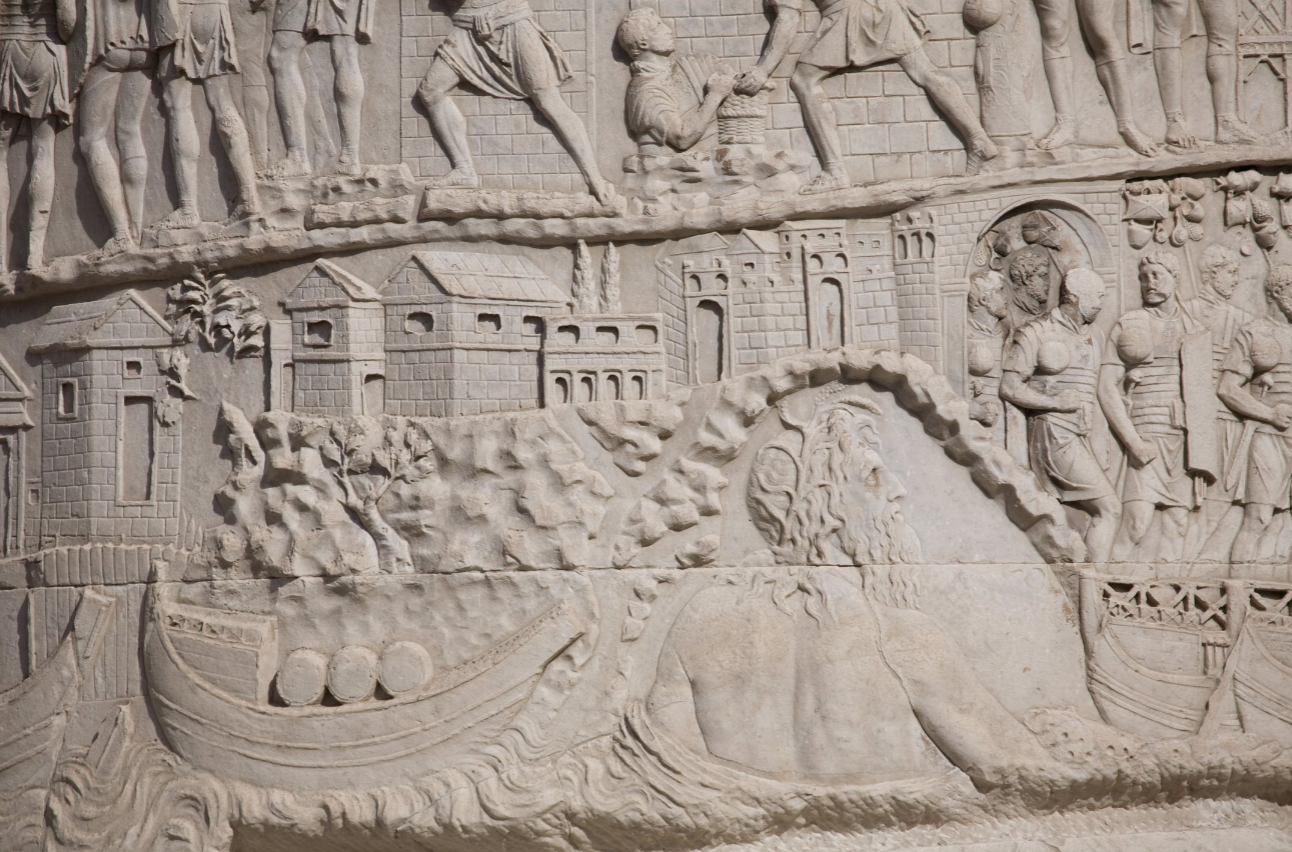
Imperial Forum - Trajan's Column, Built in 113 AD. In 1587 the statue was replaced by one of St. Peter.
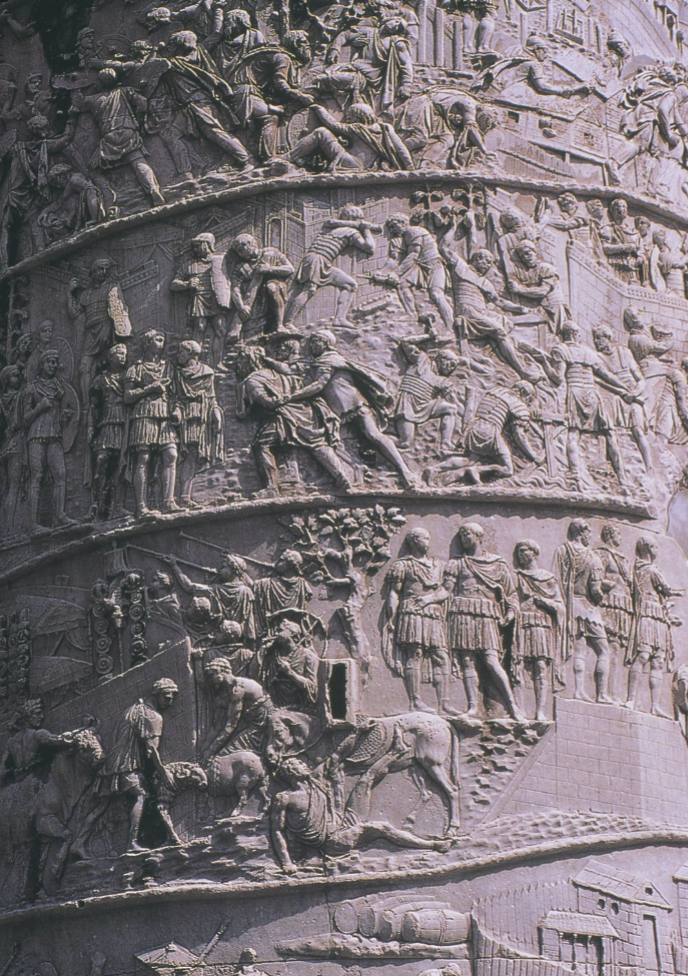
Rome: Column of Trajan: scenes 8 and 9: lustratio & libatio offered by Emperor Trajan, dedicated 113 A.D,
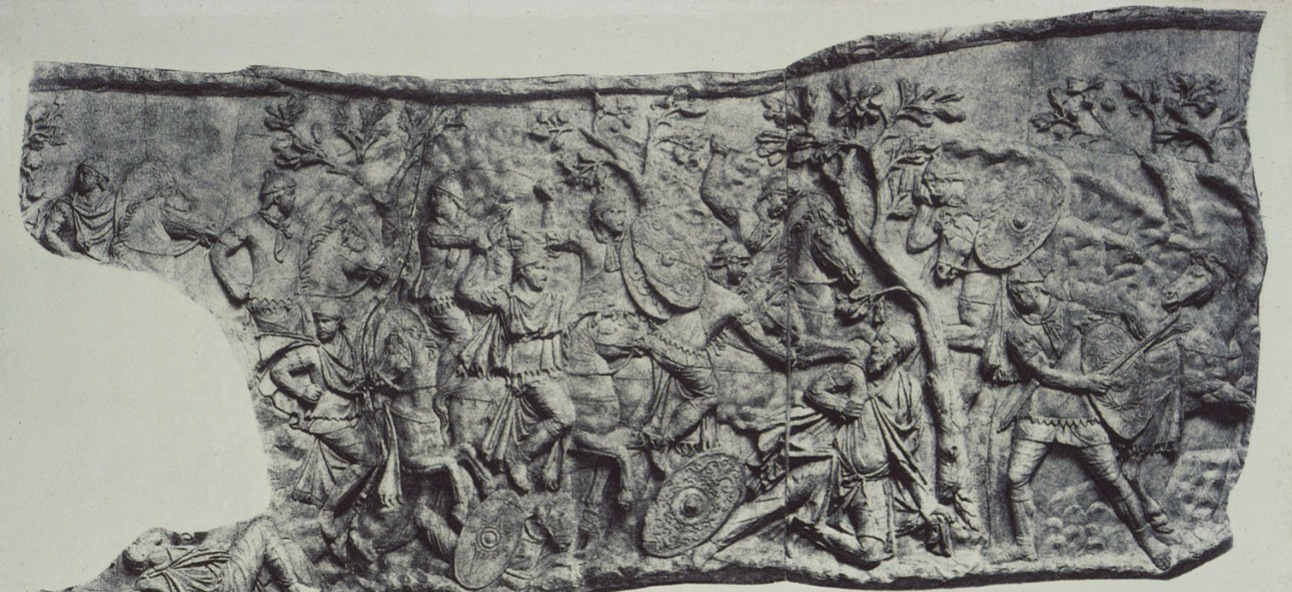
Rome: Column of Trajan: Scene 145: Capture and suicide of Decebalus, dedicated 113 A.D.
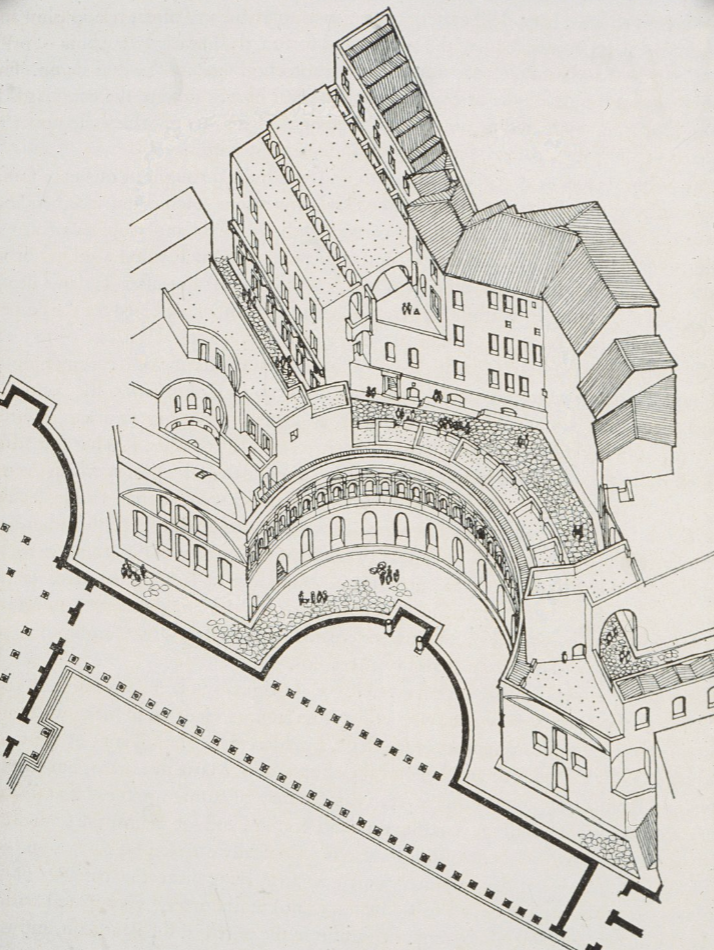
Rome: Markets of Trajan, Markets of Trajan, c.100-112 A.D
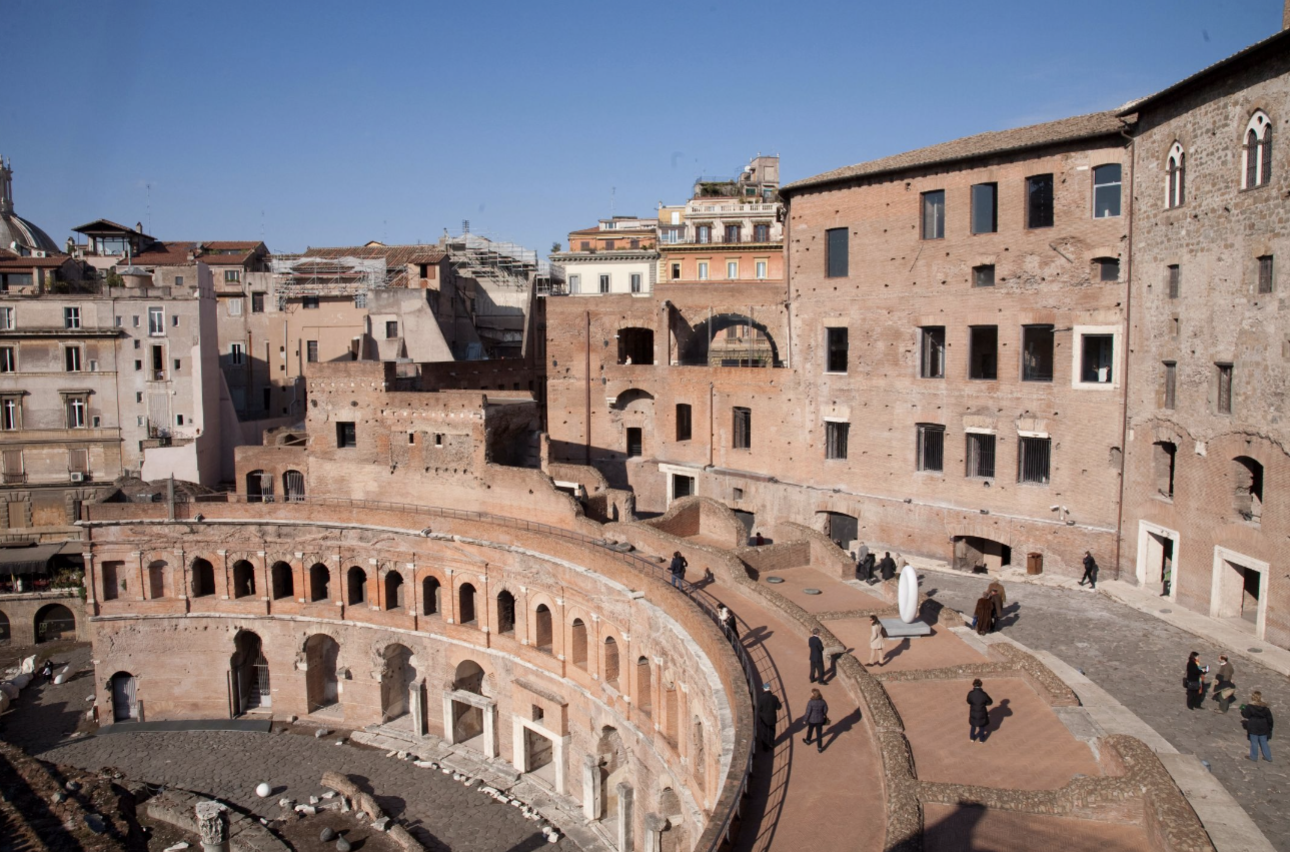
Designed by the architect Apollodorus of Damascus, Imperial Forums - Trajan's Markets, Built between 100 and 112 AD, East of the Forum of Trajan, the architect Apollodorus of Damascus built a series of green brick structures on various levels of terraces. They were used as warehouses for food and as a retail sales area.
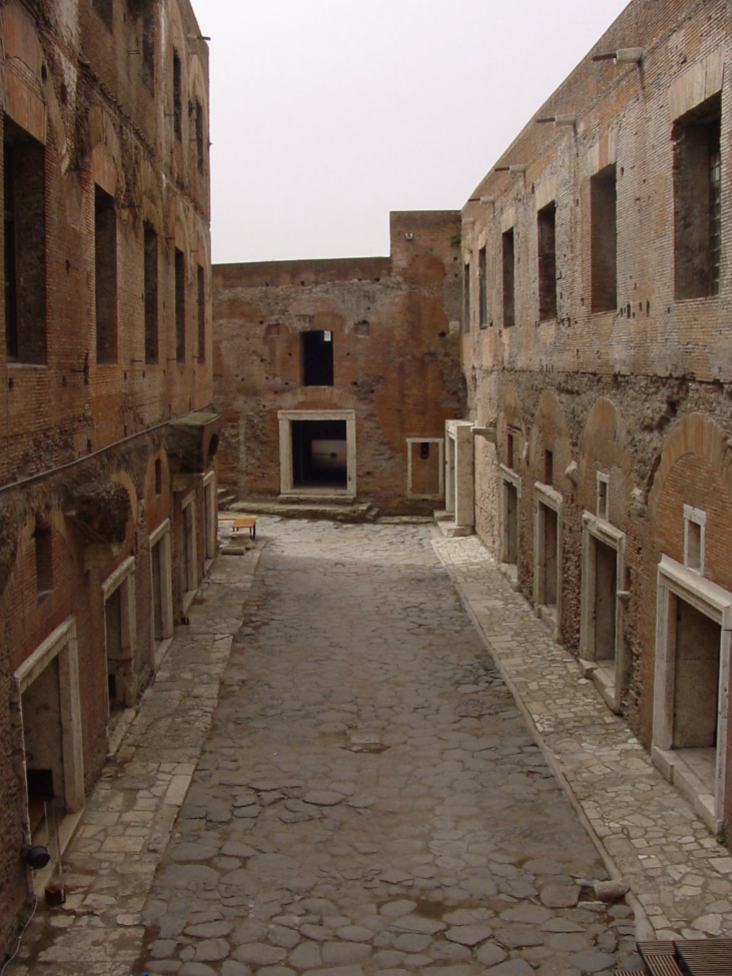
Designed by the architect Apollodorus of Damascus, Imperial Forums - Trajan's Markets, Built between 100 and 112 AD, East of the Forum of Trajan, the architect Apollodorus of Damascus built a series of green brick structures on various levels of terraces. They were used as warehouses for food and as a retail sales area.
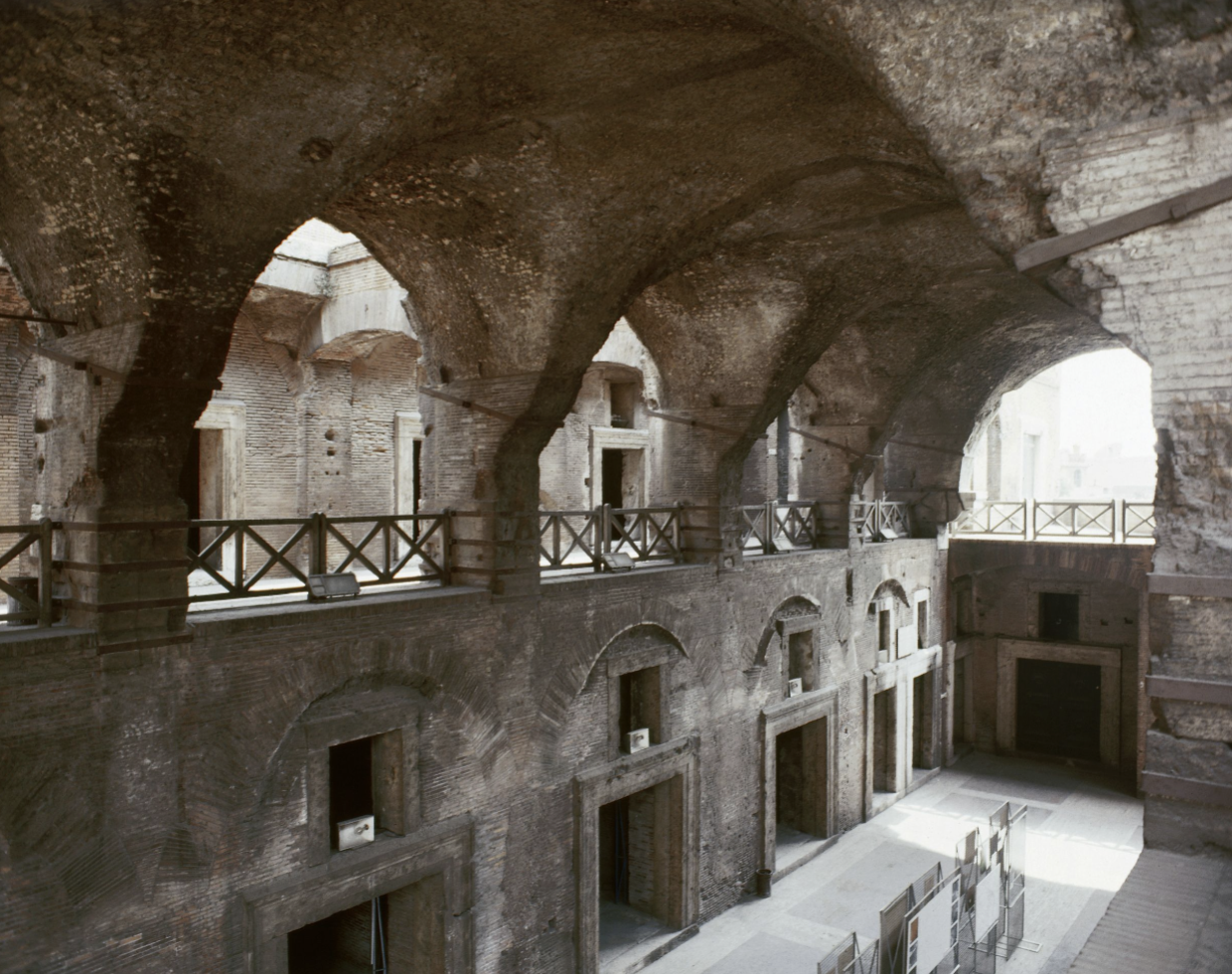
Markets of Trajan, Aula, Roman Imperial, 100-112 CE, brick and concrete
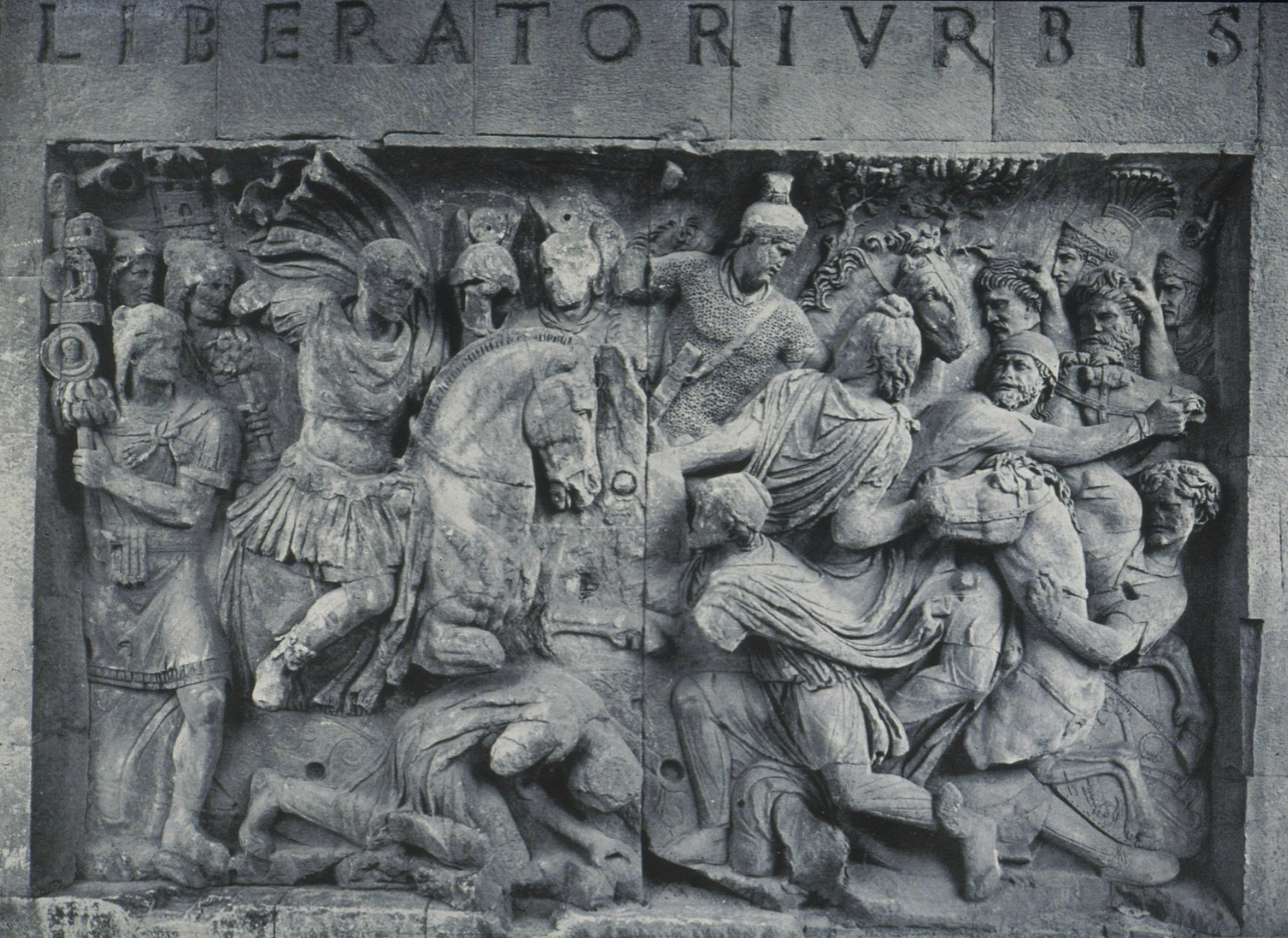
Rome: Arch of Constantine: Int.: central passageway: "Trajan Assaulting the Dacians": from Great Trajanic Frieze, c.107-114 A.D.
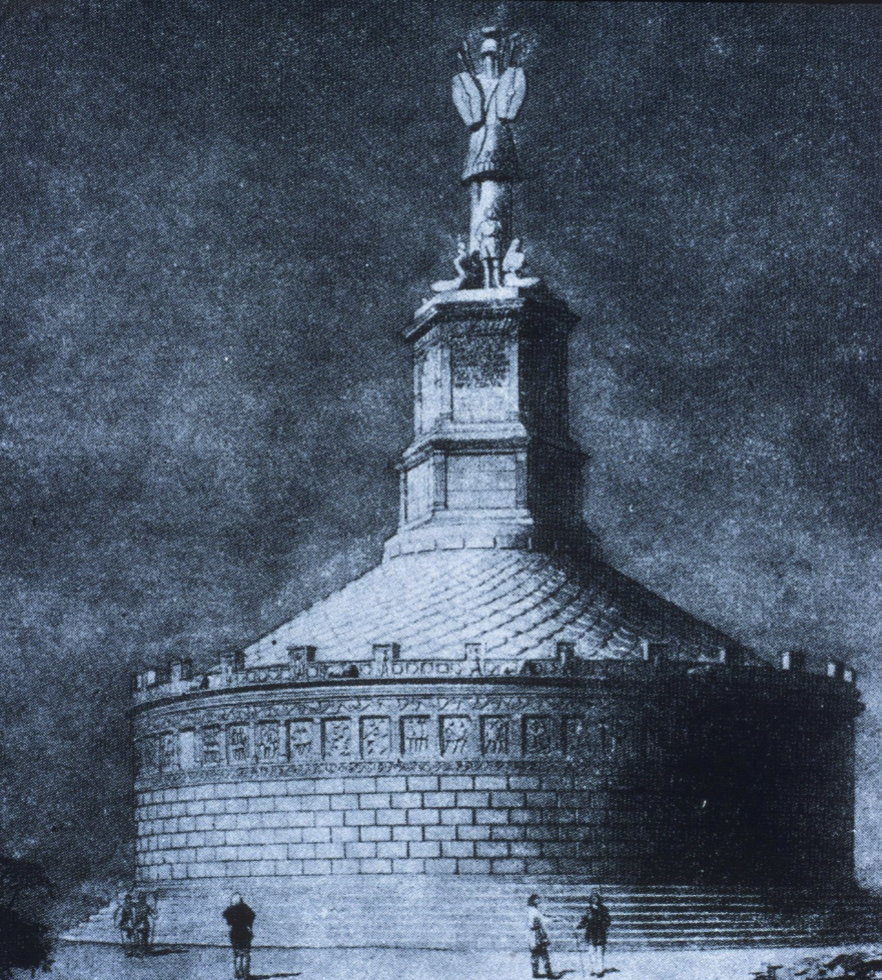
Adamklissi (Romania): Tropaeum Traiani: reconstruction drawing, Trophy of Trajan, c.110 A.D., Trajan, Emperor of Rome, 53-117, Adamclisi (Romania)--Tropaeum Traiani. Architecture:Site--Roman Balkans -2nd C. A.D., Dacian War, 2nd, 105-106
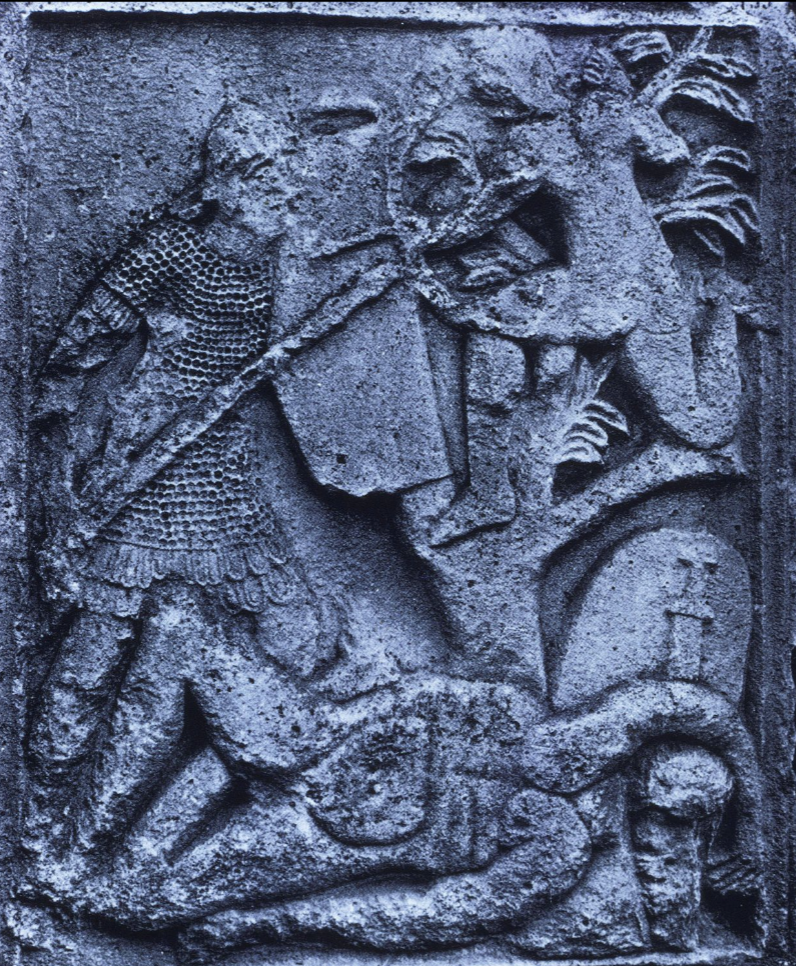
Adamklissi (Romania): Tropaeum Traiani: Metope: Roman legionary fighting Dacian archer, Trophy of Trajan, c.110 A.D, Adamclisi (Romania)--Tropaeum Traiani, Architecture:Site--Roman Balkans--2nd C. A.D., Dacian War, 2nd, 105-106
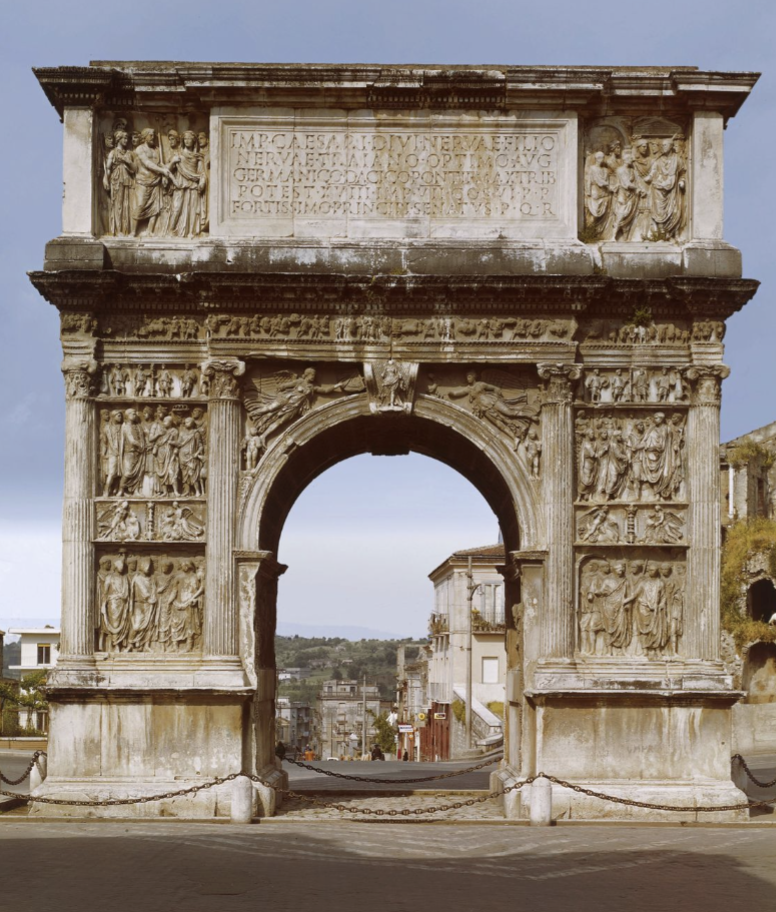
Arch of Trajan (Porta Aurea), 114 CE, Built across the Via Appia, Benevento, Italy, marble
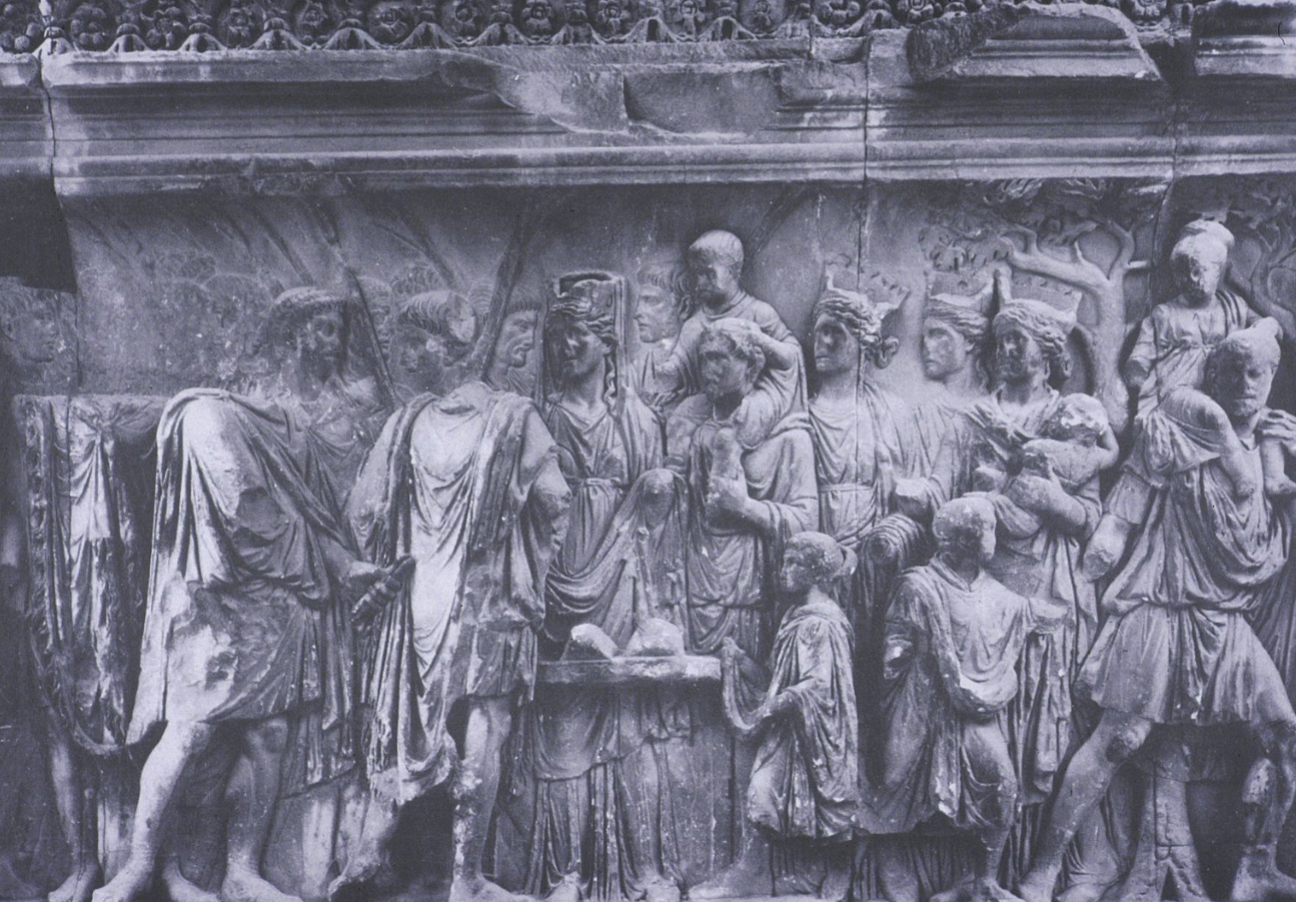
Benevento: Arch of Trajan: Ext.: passageway: relief: establishment of the Alimentaria, Porta Aurea, 114 A.D., Benevento (Italy), Marble
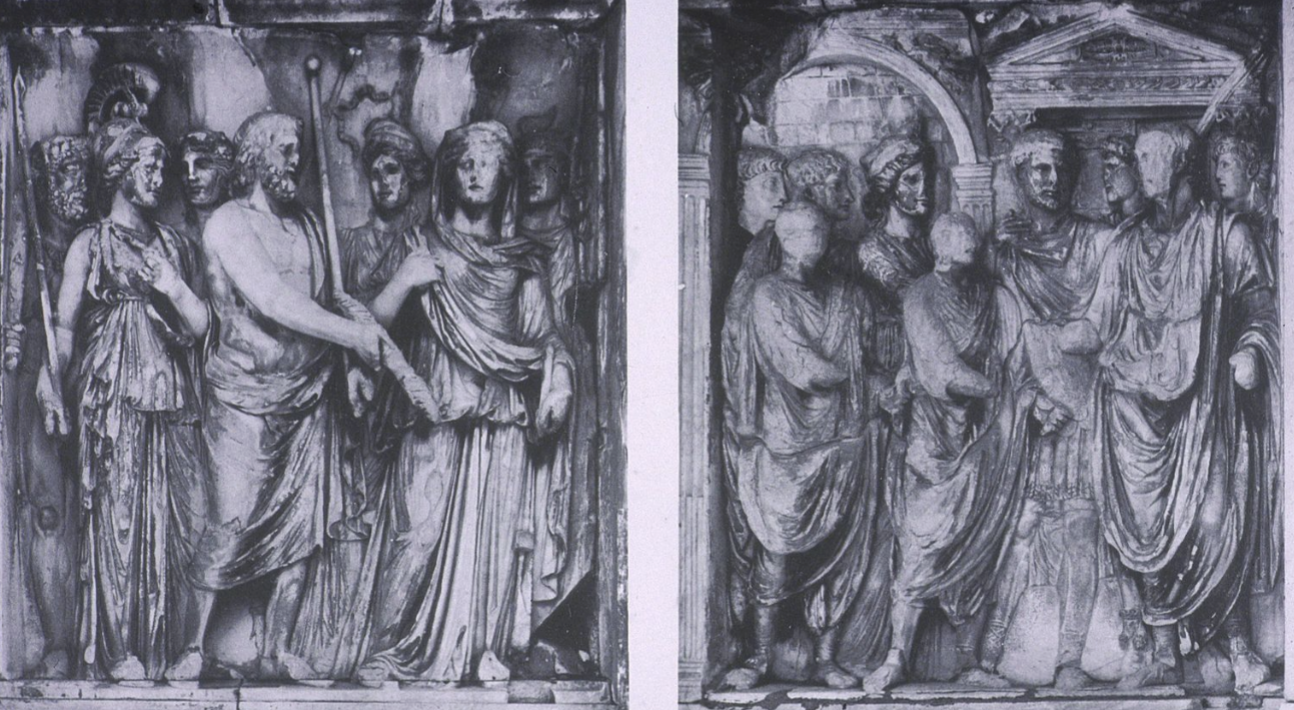
Benevento: Arch of Trajan: Ext.: South: attic reliefs: adventus of Trajan, Porta Aurea, 114 A.D., marble
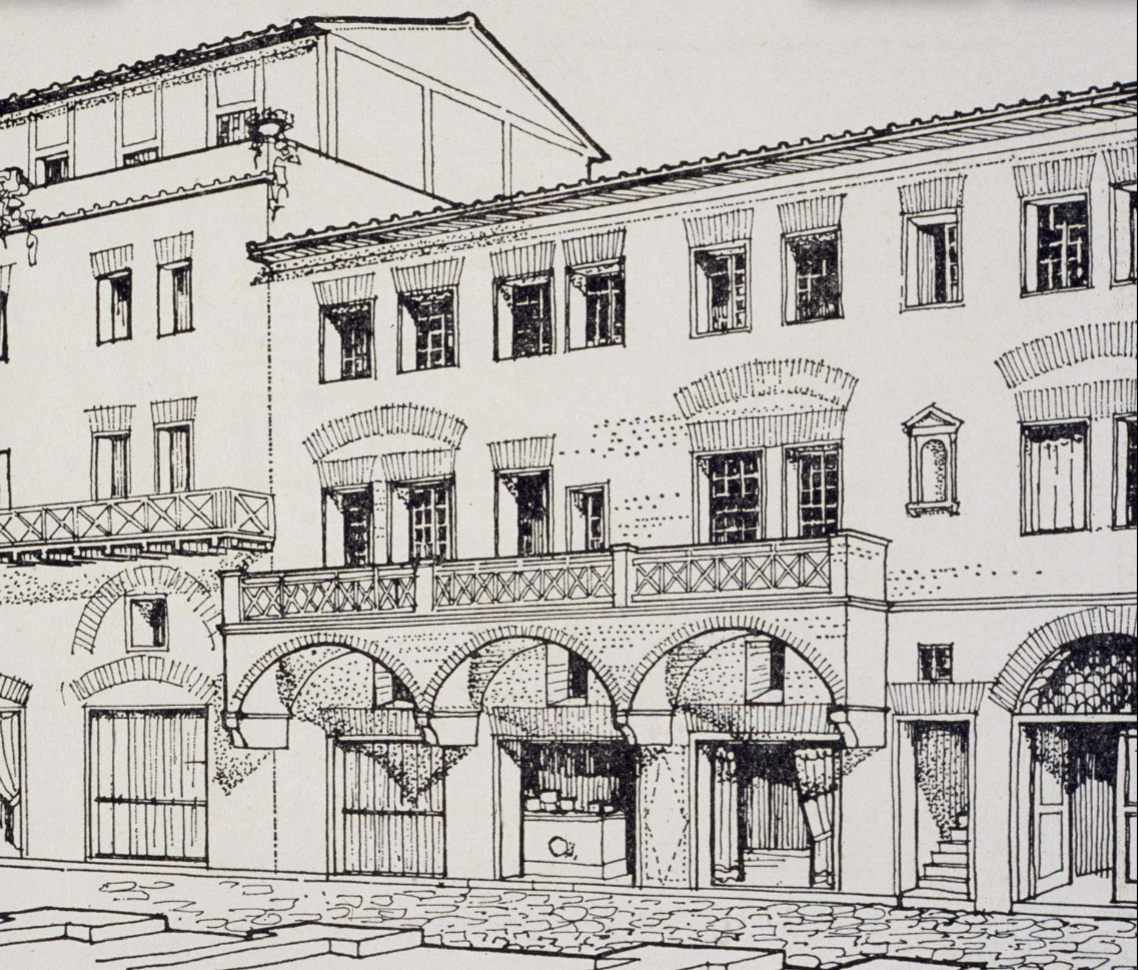
Ostia: reconstructed view facade of an insula with thernopolium below, 1st C. A.D, Ostia (Extinct city)
Roman Italy, Ostia (Extinct city)--Insula, Apartment houses--Roman Italy, Architecture:Site--Roman Italy--1st C. A.D, Insulae
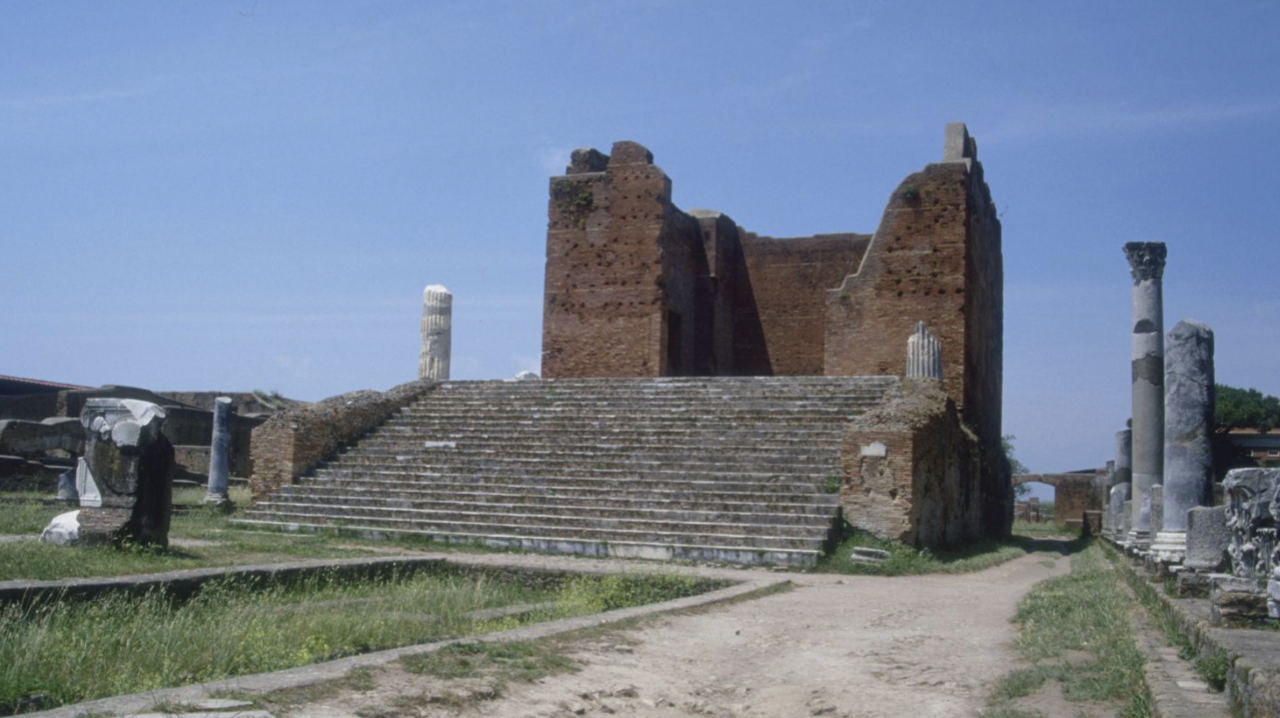
Capitolium (principal state temple dedicated to Jupiter, Juno, and Minerva), Ostia Antica, Roman, Early Empire, mid-2nd century, Ostia Antica (Rome), Italy
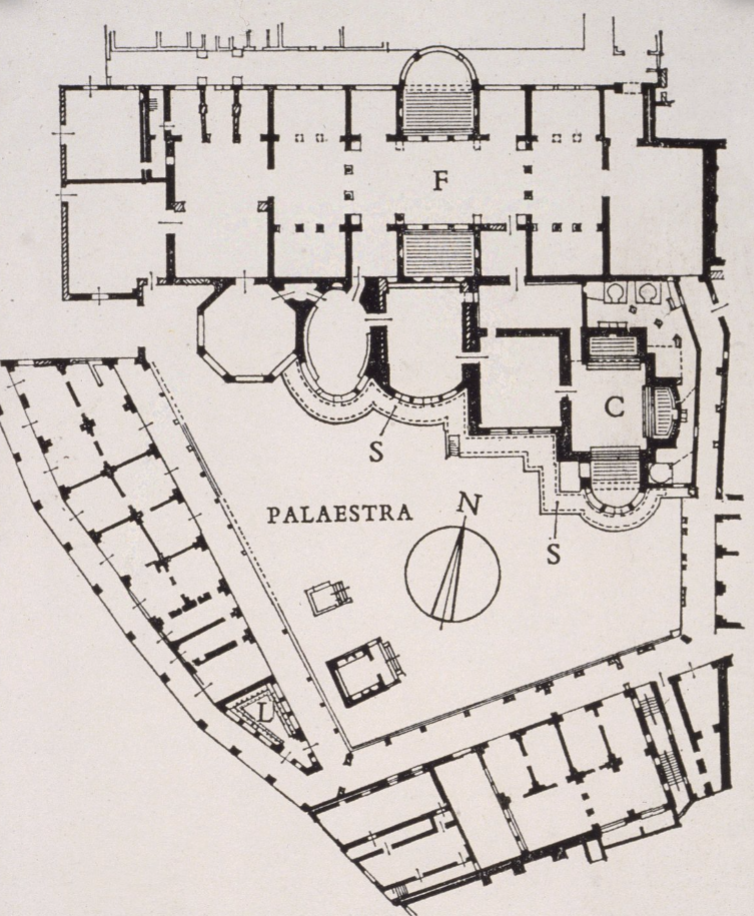
Ostia: Forum Baths plan, c.160 A.D., Ostia (Extinct city)--Forum Baths, Architecture:Site--Roman Italy--2nd C. A.D
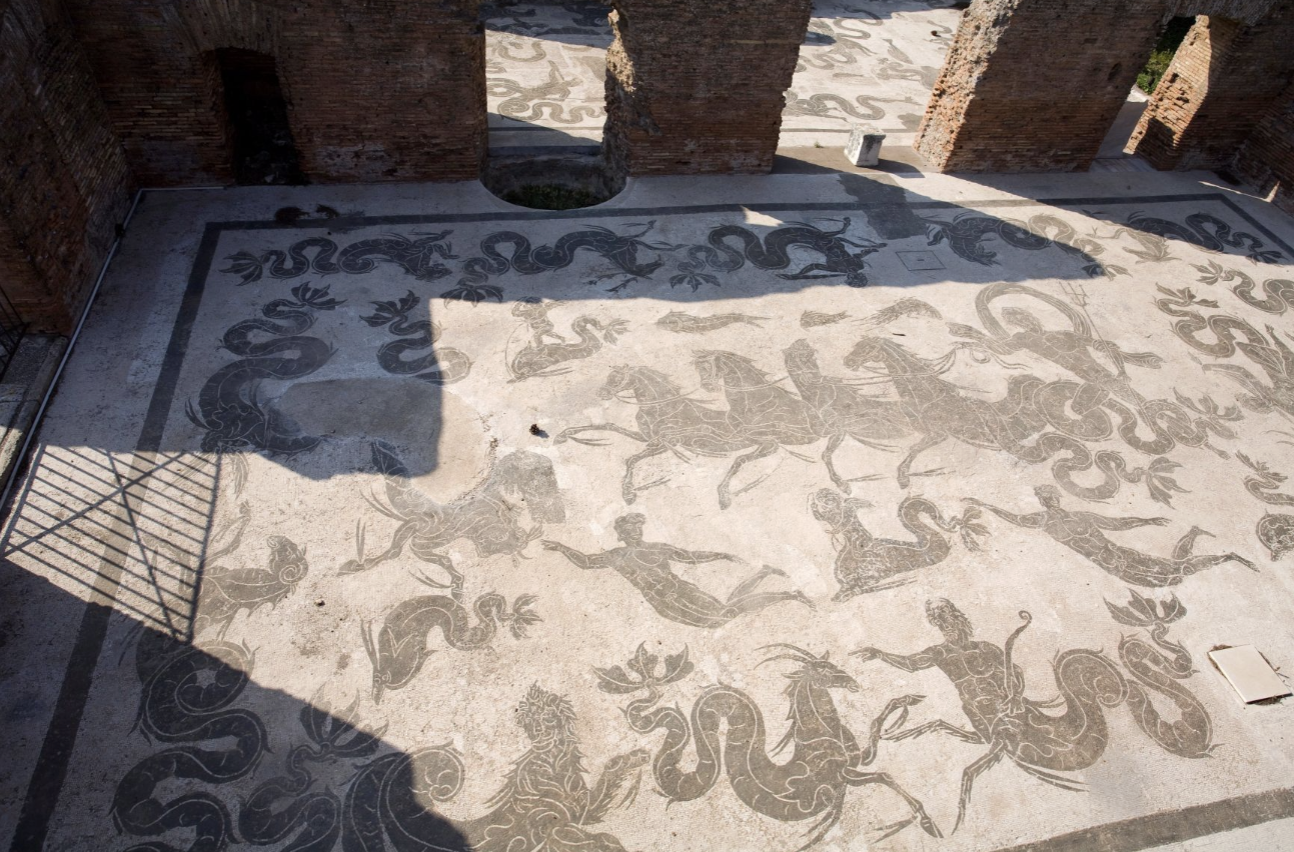
Baths of Neptune (Termi di Nettuno). Mosaic of Neptune in a chariot drawn by four hippocampi encircled by sea monsters, dolphins, tritons, and Nereids. Built by Hadrian, Built in 2nd century AD. Restored at the end of the 2nd and the fourth centuries AD, Ostia Antica, Italy
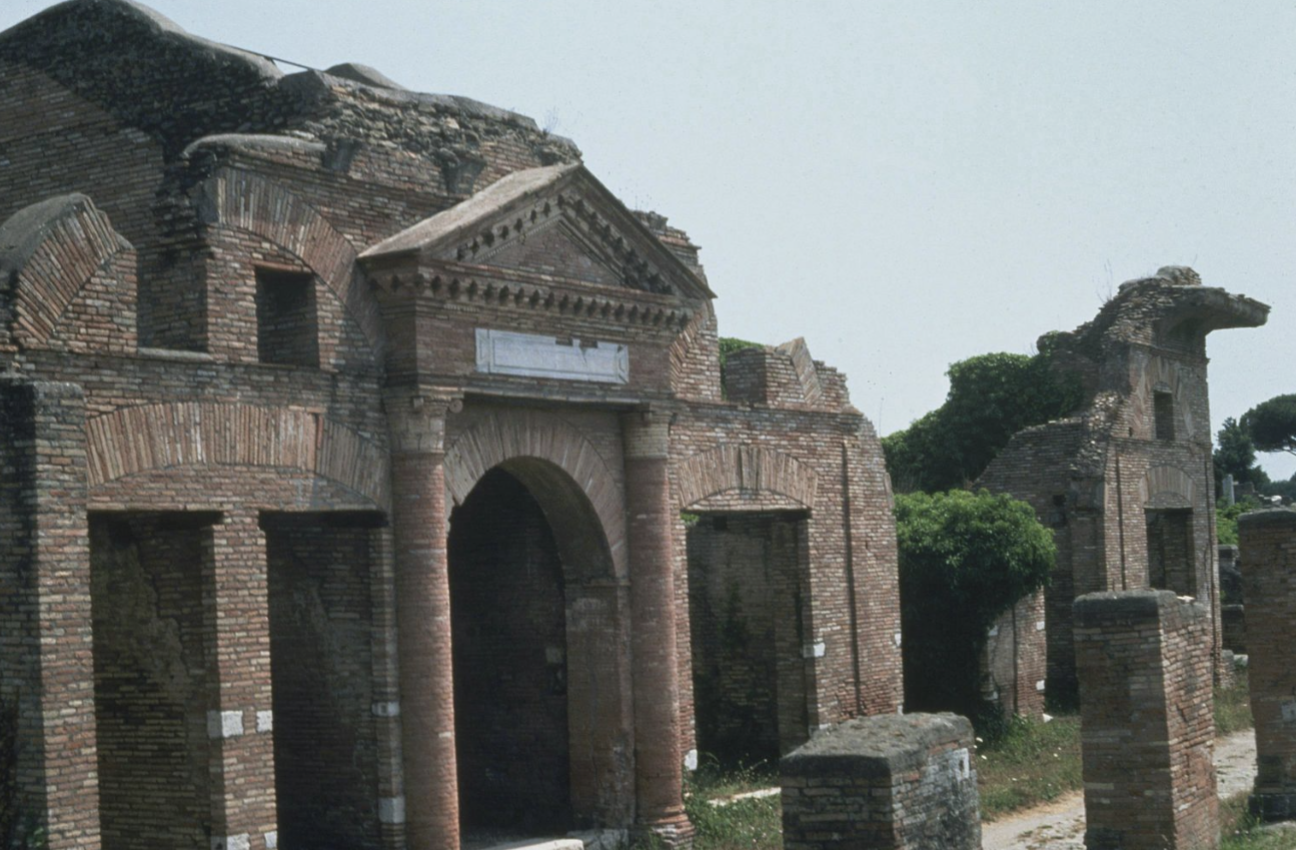
Ostia: Horrea Epagathiana: Ext.: facade, 145-50 A.D, a large, privately owned warehouse complex in Ostia Antica
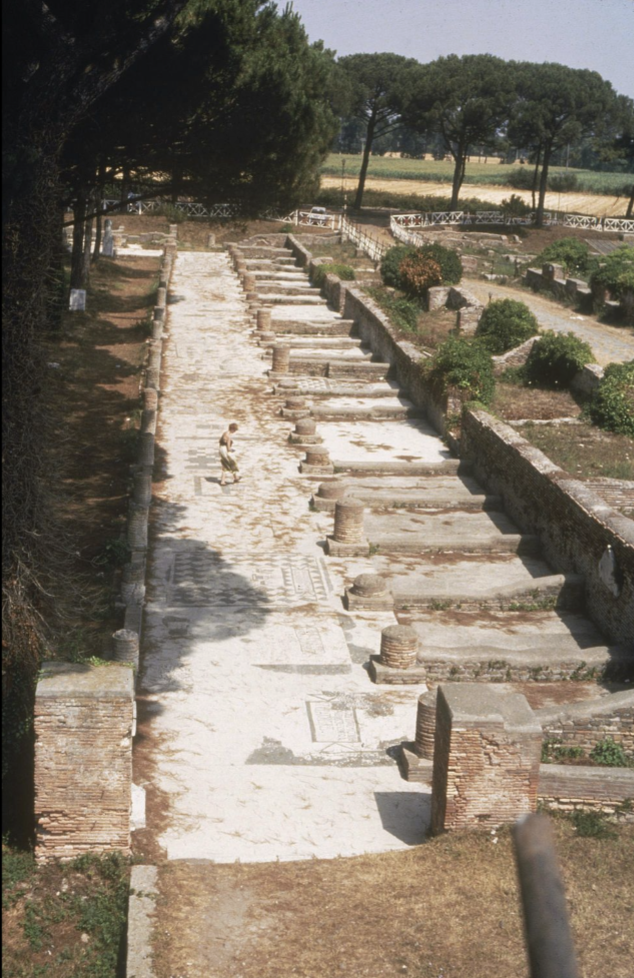
Ostia: Piazza of the Corporations: general view, Square of the Guilds, 2nd C. A.D.,a hub for commercial trade and guilds. Situated behind the ancient theater, this large courtyard was a bustling center where merchants, shippers, and traders from across the Roman Empire conducted business